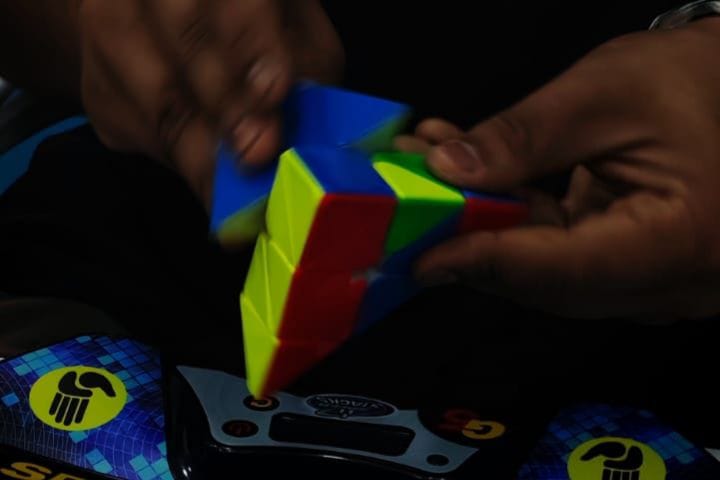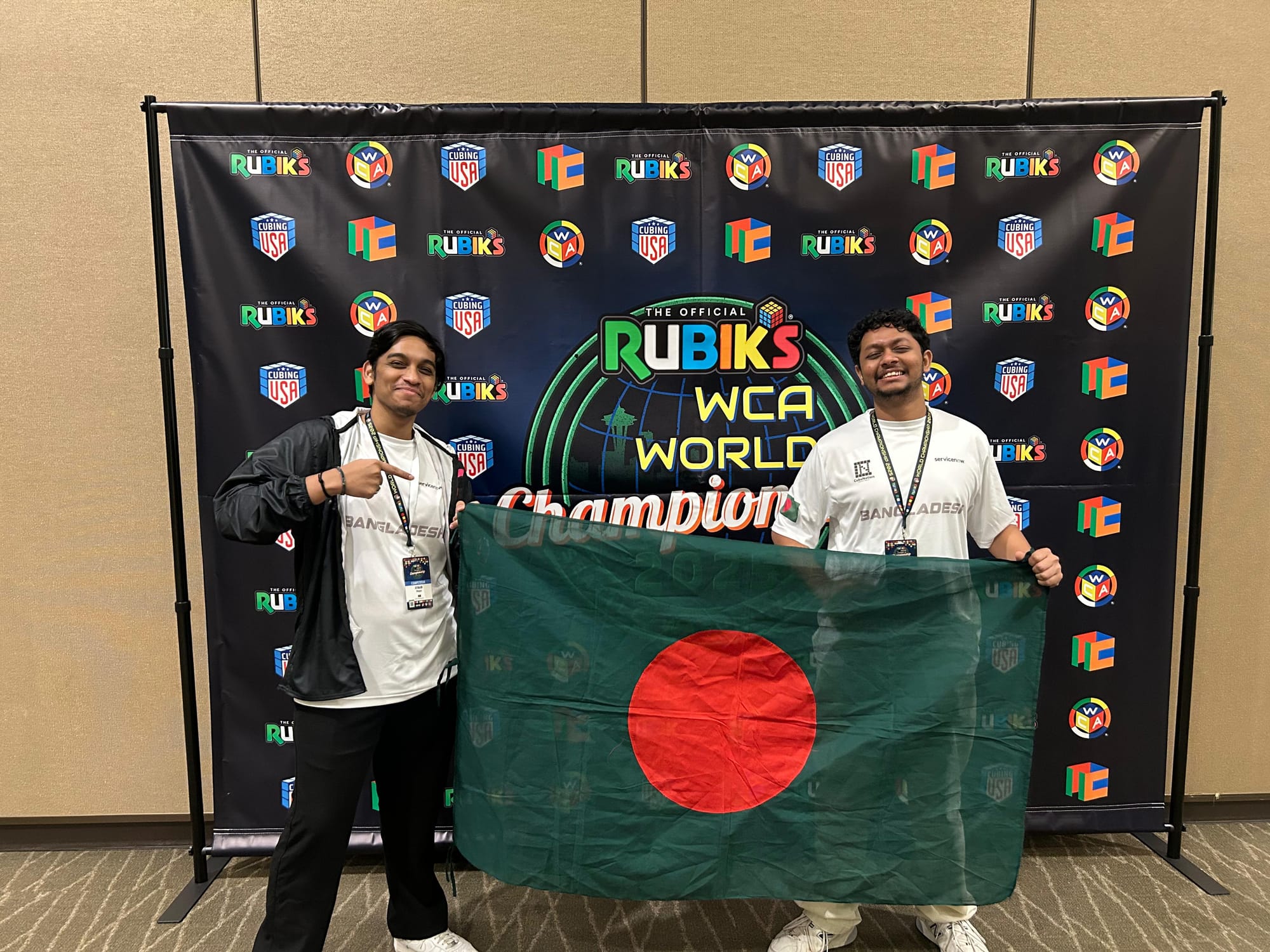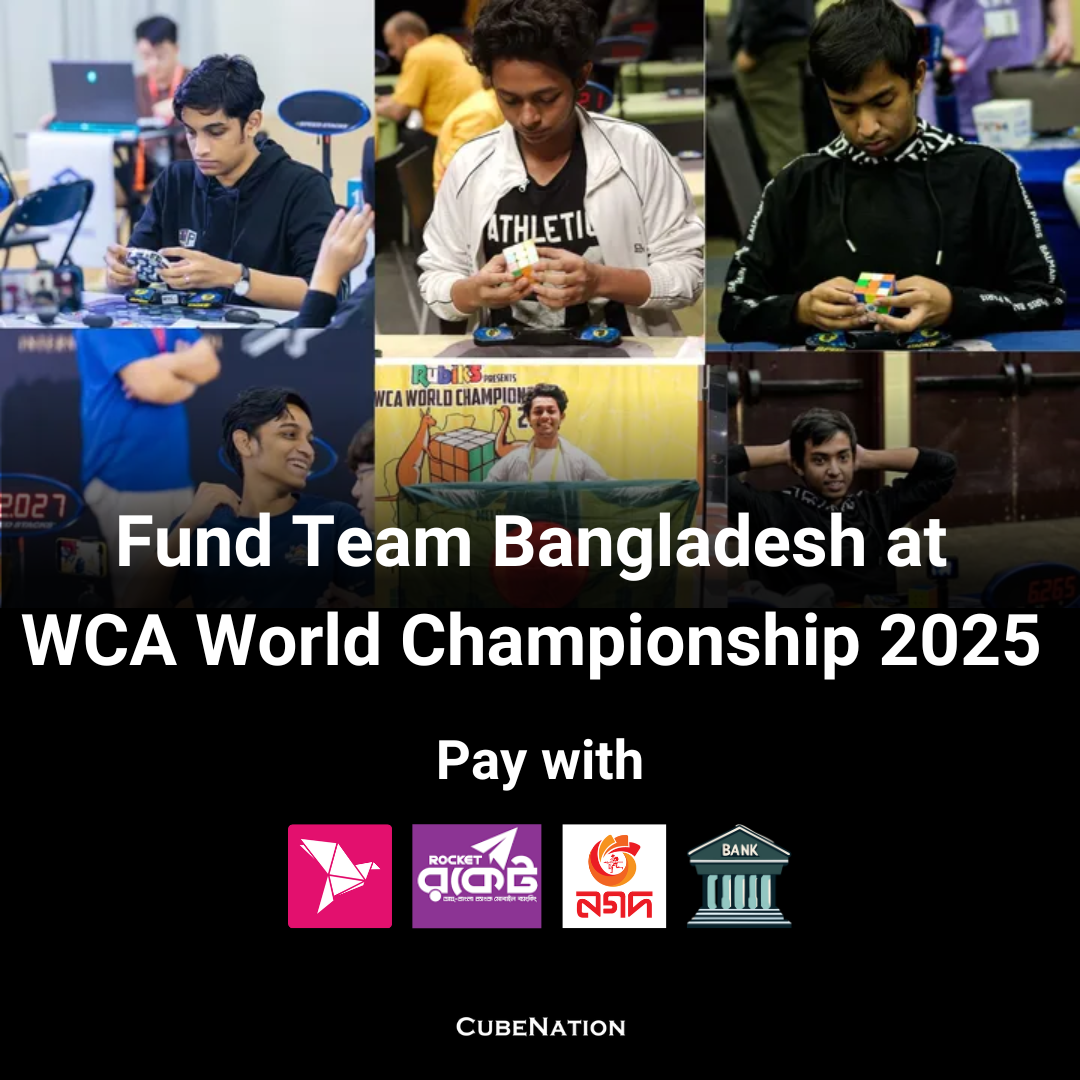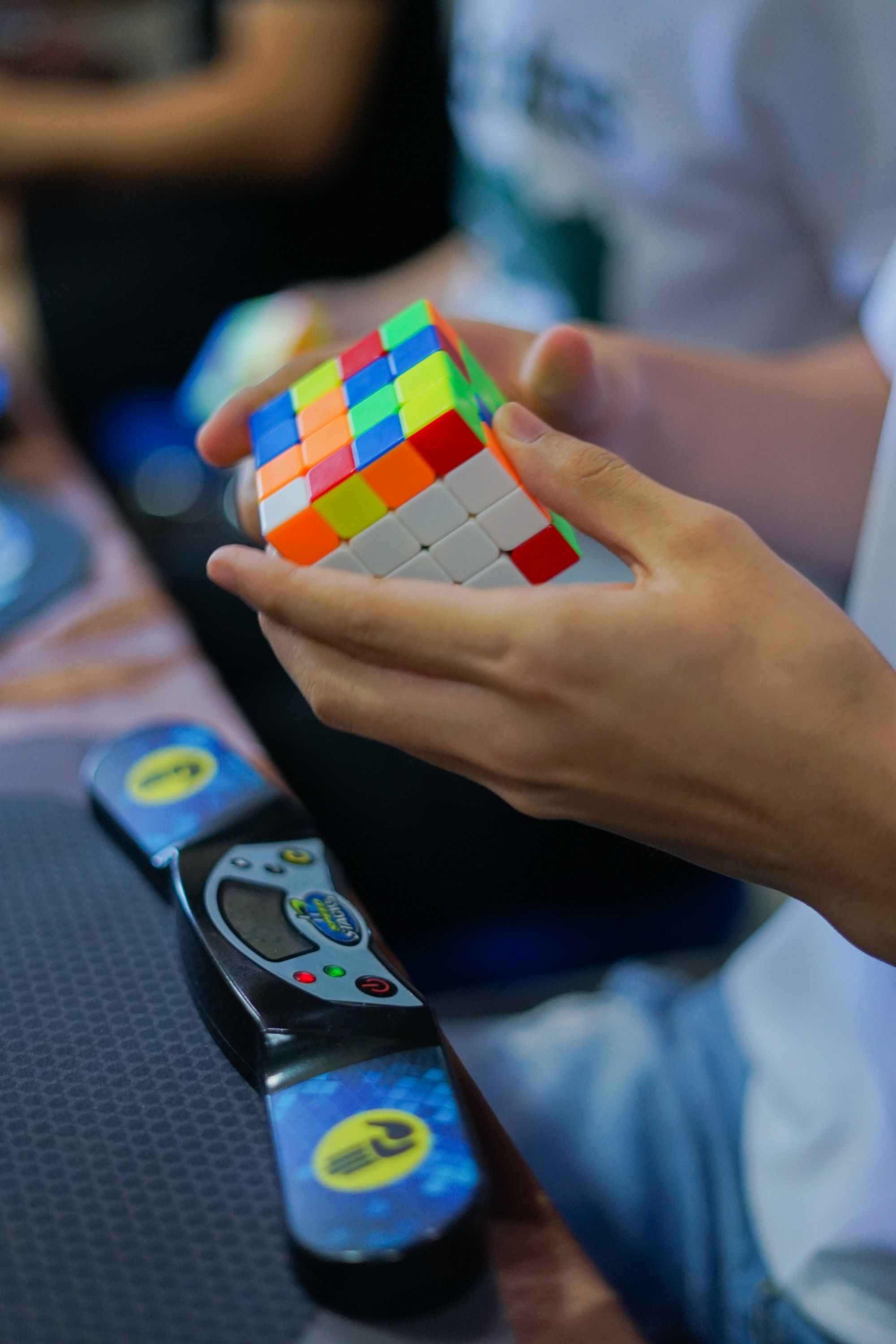
WCA Competitions in Bangladesh
Introduction
In 2004, Dutch speedcuber Ron van Bruchem and American Tyson Mao co-founded the World Cube Association to address this need. Their goal was to create a unified set of rules and a centralized system for tracking results, ensuring that all competitions were held to the same high standard. The first official WCA competition was the Dutch Open in 2003, even before the organization's formal establishment, signaling the community's readiness for a more structured approach.
The WCA's growth has been exponential. From a handful of competitions in its early years, the organization now sanctions hundreds of events across the globe annually. As of June 2024, the WCA has over 260,000 registered competitors from numerous countries, a testament to the soaring popularity of speedcubing as a competitive mind sport. This expansion has been facilitated by a dedicated team of volunteer delegates who are trained to enforce WCA regulations and ensure the integrity of competitions.
Before the WCA, Rubik’s Cube competitions were rare, inconsistent, and lacked uniform rules. The WCA introduced a global rulebook, official scrambles, and a results database, making competitions fair, transparent, and comparable across countries.
Why official competitions matter:
- They ensure fairness with standardized rules, scrambles, and equipment checks.
- Results are officially recognized and stored in the WCA database, giving competitors rankings and world records.
- Competitions create a structured environment for cubers to showcase skills, set personal bests, and pursue records.
- They foster community, connecting cubers from different regions and promoting the global growth of speedcubing.
Bangladesh’s Entry into the WCA
Although Bangladesh has participated in the cubing scene since the early 2010s, it did not host any official competitions under the World Cube Association (WCA) for many years. The only recognized events were tied to the Bangladesh National Math Olympiad (BDMO), where speedcubing was occasionally featured. Winners of those contests were informally declared “national champions,” as there were no official WCA competitions to validate titles or maintain records.
This changed in December 2017, when Bangladesh hosted its first-ever WCA-sanctioned event: the Bangladesh Cubing Fiesta 2017 in Dhaka. That marked the country’s formal entry into the global cubing community, with results now recorded in the WCA database and recognized worldwide.




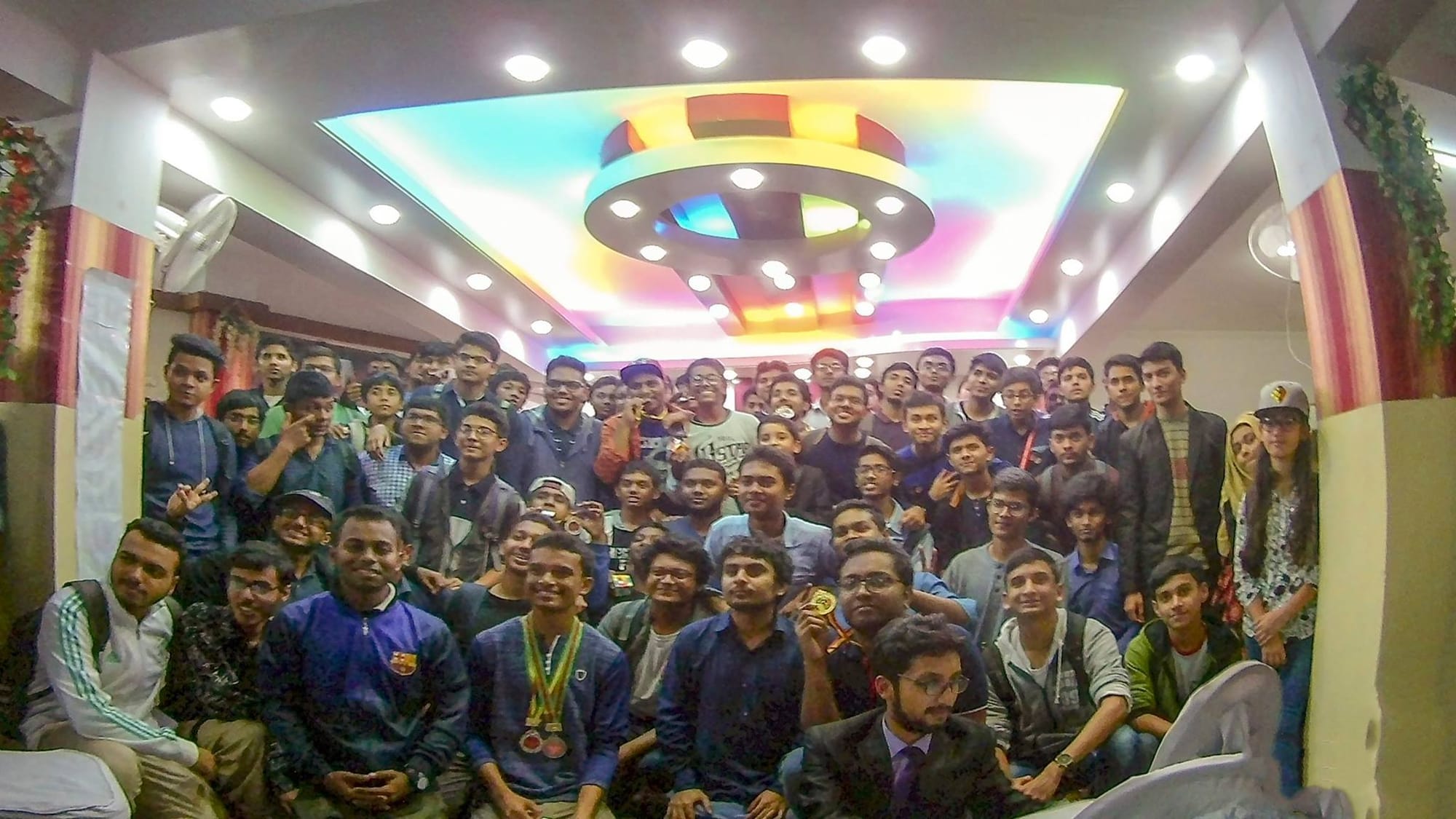
Bangladesh Cubing Fiesta 2017
After the first event in late 2017, Bangladesh began hosting several WCA competitions per year. For example:
- 2018 had at least the Dhaka Spring Open (Mar) and Monsoon Cube Open (Jul).
- 2019 had the Knights Cubing Open 2019 (Sep), Bangladesh Cubing Fiesta 2019 (Dec), and Dinajpur Cubing Open 2019 (Dec).
Bangladesh’s late but steady entry into the WCA scene shows both the challenges and resilience of its cubing community. What began with informal recognition through math olympiads is now a consistent presence on the world stage, giving Bangladeshi cubers the platform to achieve official records and compete alongside the global community.
Why WCA Competitions Matter
Official WCA competitions play a vital role in shaping the cubing community. Their importance goes beyond just solving puzzles; they provide structure, recognition, and inspiration for cubers of all levels.

- Official recognition—Achievements are recorded in the WCA database, giving cubers a legitimate place in global rankings.
- Records—Competitions allow participants to set and break personal, national, and even world records under fair and standardized conditions.
- Motivation for cubers—The thrill of competing and the chance to improve official times push cubers to practice harder and reach new milestones.
- Skill development—Facing time pressure, learning efficiency, and solving in front of an audience all help sharpen both speed and accuracy.
- Exposure to international standards—Cubers experience globally accepted rules, scrambles, and regulations, preparing them to compete on the world stage.
Community Role
The WCA provides the structure of a unified rulebook, scrambles, and an international results database that ensures fairness across every country. But in Bangladesh, the real foundation of cubing was laid long before the first WCA event in 2017.
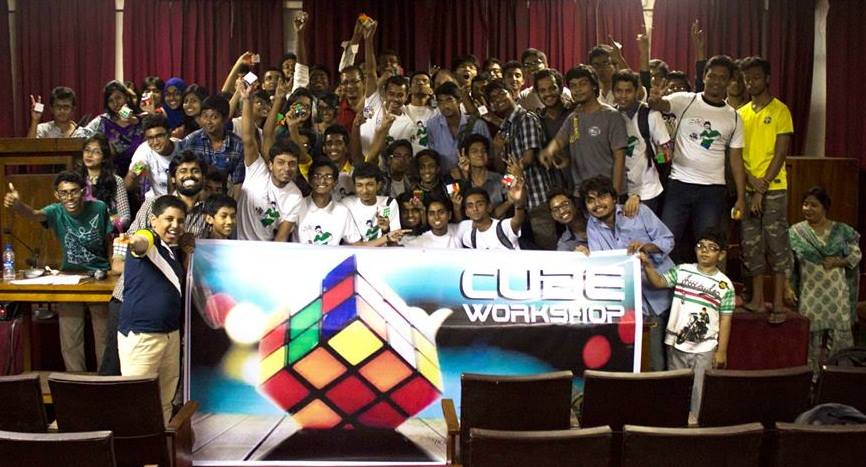
It was the local cubers, many of them still school-going at the time, who built the scene from the ground up. They came together under the banner of Cubing Bangladesh, creating a sense of community when there was no official recognition. If one name stands out as the pioneer, it would be Sakib Ibn Rashid Rivu, whose efforts helped put Bangladeshi cubing on the map. Yet, he was never alone; dozens of passionate cubers contributed to shaping the community into what it is today. Names like Muhtasim Al-Farabi, Arnab Banik, Farhanul Haque Khan, Rasheed Abid, and many others deserve credit for pouring their heart and souls into the growth of this movement.

Farhanul Haque Khan, once just a school-going cuber, is now the founder of Cubenation, the largest cube shop in Bangladesh. Arnab Banik, another early enthusiast, went on to become a WCA Delegate. What started as a youthful passion has now turned into lasting contributions, making them an undivided part of the country’s speedcubing landscape.
Even today, competitions in Bangladesh depend heavily on this same spirit. Organizers, volunteers, and sponsors from the community make sure events happen despite limited resources. While the WCA provides the framework, the Bangladeshi cubers themselves are the driving force, transforming cubing from small gatherings into a nationally recognized sport with a global reach.
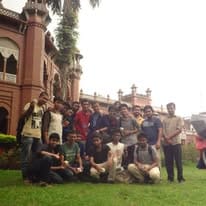
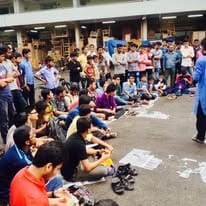
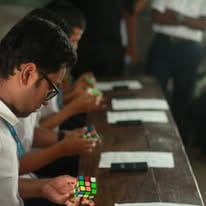
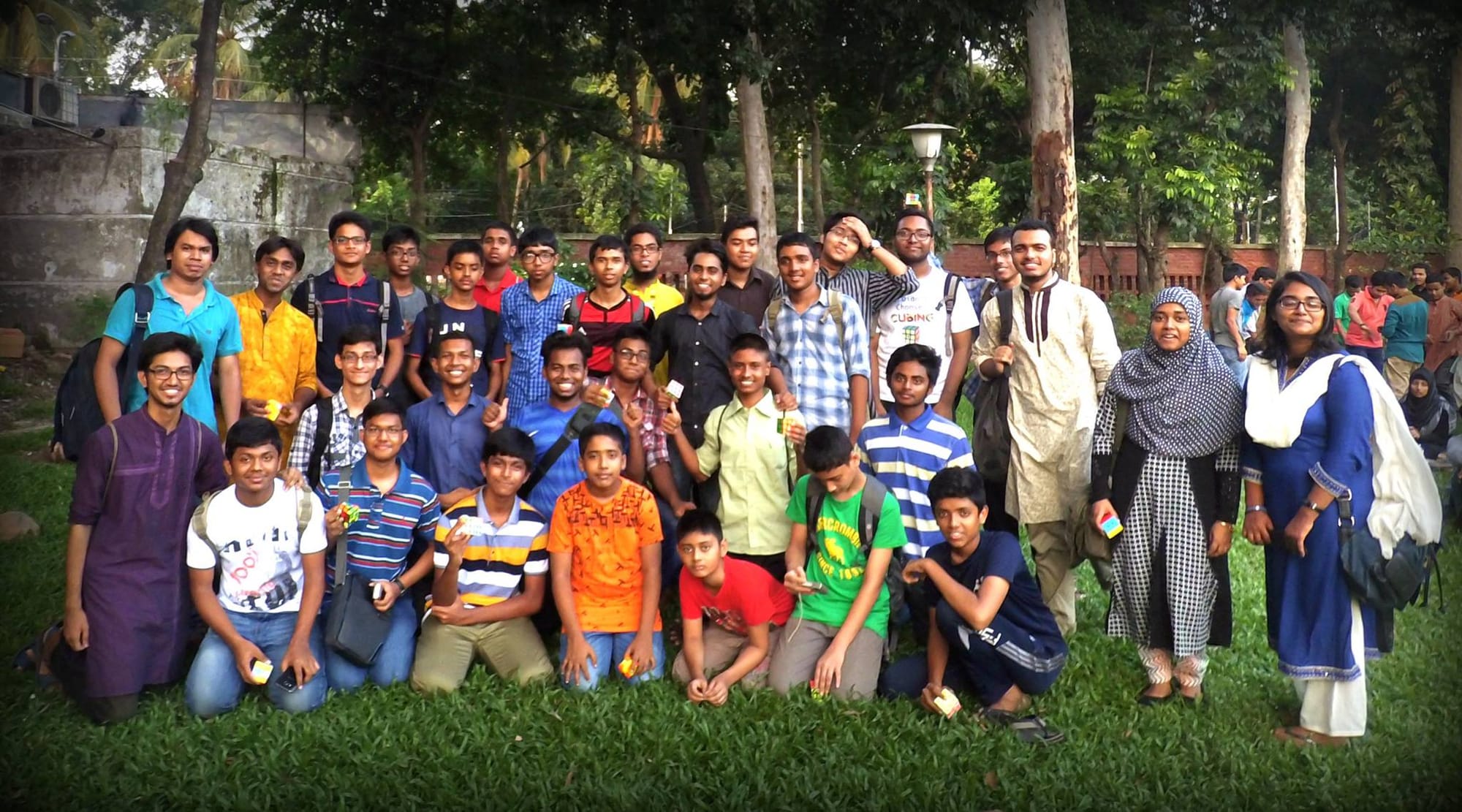
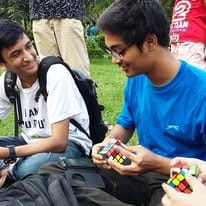
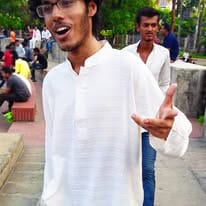
The early days of Cubing Bangladesh before WCA (2012-2017)
WCA Competitions in Bangladesh
Current Realities
Delegates and Organizers in Bangladesh
In Bangladesh's speedcubing scene, the seamless execution of official competitions relies on the distinct but collaborative roles of World Cube Association (WCA) Delegates and local organizers. This structure ensures that events are both compliant with international standards and tailored to the needs of the local community.
As of September 2025, Bangladesh has a total of three World Cube Association (WCA) delegates at different stages of their roles:
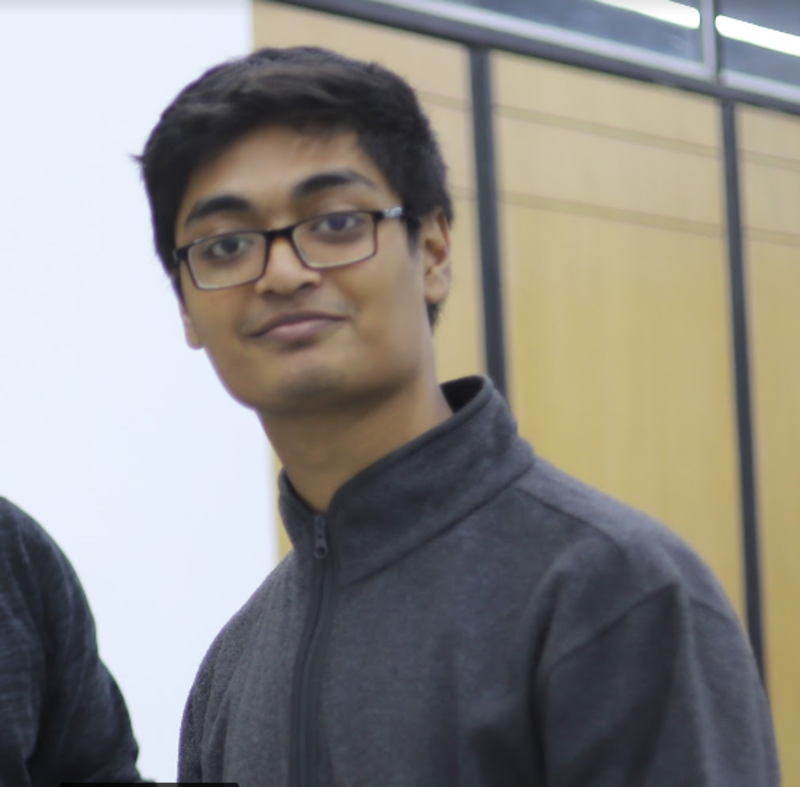
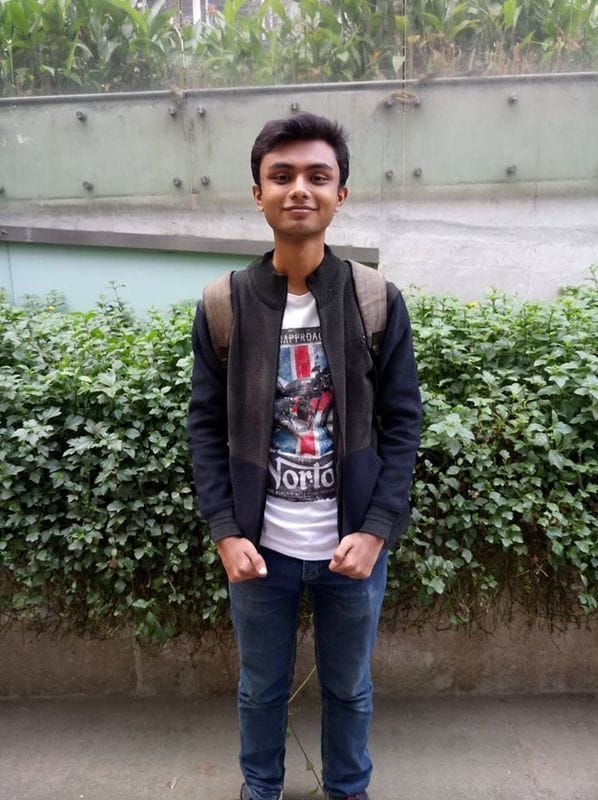

WCA Delegates of Bangladesh - From Left to Right
- Arnab Banik (Junior Delegate)
- Mohammad Siwom Chowdhury (Junior Delegate)
- Farhan Labib (Trainee Delegate)
Arnab Banik and Mohammad Siwom Chowdhury are the main delegates responsible for independently overseeing and ensuring that competitions comply with WCA regulations.
As a trainee delegate, Farhan Labib is the newest addition to the team. He is currently in a training period, where he will learn the official procedures and responsibilities by assisting the main delegates at competitions before becoming fully certified. This is a vital step in ensuring the continued quality and growth of official events in the country. (As of 2025 September)
These delegates are the official representatives of the WCA on the ground. Their primary responsibility is to ensure that every competition adheres strictly to the WCA regulations. This includes overseeing scrambling, judging procedures, and timing, thereby guaranteeing the integrity and official status of all results.
Role of Organizers in Supporting Delegates
While delegates ensure regulatory compliance, the organizers are the logistical backbone of any competition. Their role is to create the entire event framework, which allows the delegates to effectively carry out their duties. The support from organizers includes
- Venue Management: Securing and preparing a suitable location for the competition.
- Registration and Scheduling: Managing competitor registrations, collecting fees, and creating a feasible event schedule.
- Resource Provision: Arranging for all necessary equipment, managing sponsors, a nd all the other pre-competition works.
- Volunteer Coordination: Assembling and managing a team of volunteers to act as judges, scramblers, and runners.
- Communication: Acting as the primary point of contact for competitors and handling event promotion.
Essentially, the organizing team handles all practical aspects of the event, freeing up the delegate to focus solely on their official responsibilities of enforcing WCA rules and validating the competition's results.
Concentration of Events in Dhaka
A significant majority of WCA competitions in Bangladesh are held in Dhaka. This concentration is due to several practical and demographic factors that make the capital city the most logical hub for the cubing community:
- Largest Community Base: As the most populous city, Dhaka is home to the largest number of active speedcubers, ensuring higher participation rates and a readily available pool of experienced volunteers.
- Accessibility to Venues: The capital offers a wider selection of suitable and affordable venues, such as university auditoriums, community halls, and convention spaces, that can accommodate the specific needs of a WCA competition.
- Transportation Hub: Dhaka's central location and extensive transport network make it the most accessible city for competitors traveling from different parts of the country.
- Established Organizing Teams: The city has a core group of experienced organizers and community leaders who have the knowledge and resources to plan and execute WCA-sanctioned events efficiently.
While competitions are occasionally held in other cities like Chattogram, Dhaka remains the center of competitive speedcubing in Bangladesh, fostering its growth and providing a consistent platform for the community.
The Size and Demographics of the Bangladeshi Cubing Community
The speedcubing community in Bangladesh is a vibrant and rapidly expanding ecosystem, characterized by a dedicated core of competitive players and a much larger online following. The hobby's popularity is particularly concentrated among students, who are the driving force behind its growth.
Estimate of active cubers
The size of Bangladesh’s cubing community becomes clearer when looking at both official WCA data and local platforms:
- WCA database: 2,393 registered Bangladeshi accounts, but only about 670 have actually competed in official WCA events.
- Casual solvers: An estimated 20,000 people in Bangladesh know how to solve a cube, though most are unaware of speedsolving or the WCA.
- Online activity: In the last 90 days alone, over 7,100 Bangladeshi cubers were active online, sharing and discussing cubing content.
- CubistBD (official group of Cubing Bangladesh): Around 16,000 members.
- Rubik’s Cube Community Bangladesh: Around 20,000 members, with significant overlap with CubistBD but still showing strong interest.
- Cubers’ Corner (Messenger group): Around 250 highly active cubers, who interact daily and form the most engaged core of the community.
Most of these online cubers are students, making up an estimated 80% of the community. They discover cubing in schools, universities, or even coaching centers, where it spreads quickly through peers. At the same time, there are also many veteran cubers who no longer compete but still follow updates, support the community, and contribute to discussions.
The number shows that while the official competitor base remains limited, cubing has deep cultural roots in Bangladesh and the potential for much larger growth if more of these casual solvers transition into the WCA scene.
Cubing in schools and colleges
The roots of the Bangladeshi cubing community can actually be traced back to school buildings. Long before WCA competitions came to Bangladesh, it was the students and teenagers who drove the first wave of curiosity.
The cubing scene at the school and college level has developed in a very unique way. Instead of being treated only as a hobby, cubing is often included as part of intellectual and academic events.
- Science Fests & Olympiads: Many schools and colleges host annual science fests or intellectual festivals where Rubik’s Cube solving is a dedicated segment. Usually, the cube-solving events are placed under the Olympiad or puzzle section, giving cubing a prestigious and competitive image.
- Role of Math Clubs: In most institutions, the Math Club or similar academic societies take responsibility for organizing the cubing portion. This not only ensures smooth management but also connects cubing with other problem-solving disciplines like mathematics, chess, and programming.
- Platform for Young Cubers: These fests have become the first exposure to competition for many young cubers. For students who are not yet aware of the WCA or the wider cubing community, school fests serve as a stepping stone. Many active competitors today first discovered their talent in such events.
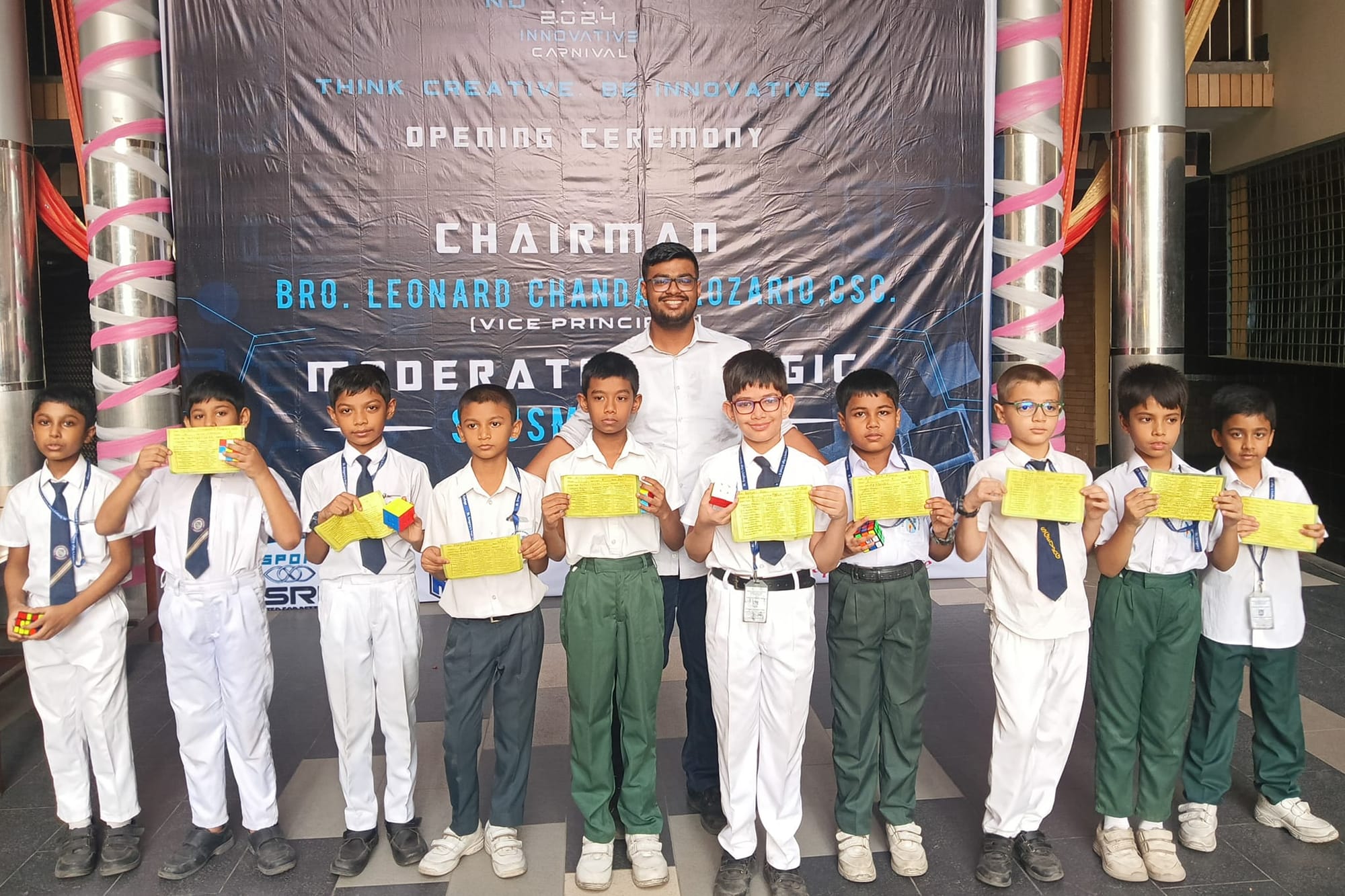
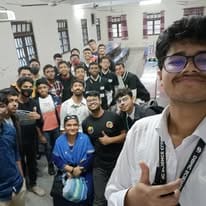
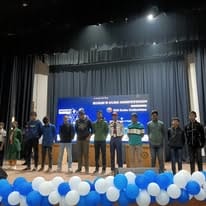
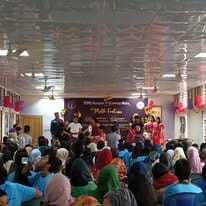

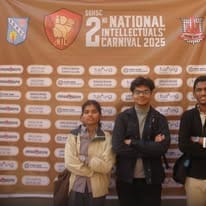
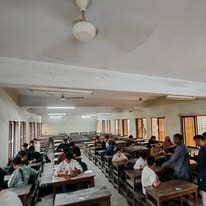
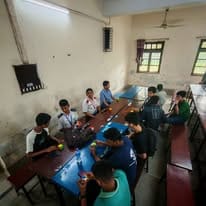
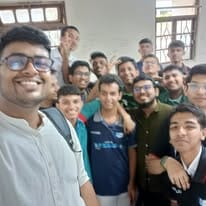
Rubik's Cube segment of various school fest of Dhaka
These school-level cubing competitions, while unofficial, play a huge role in community growth. They spark curiosity among new solvers, create local recognition for cubers, and inspire students to eventually join official WCA competitions.
Availability of cubes and shops
In the early days of Bangladeshi cubing, access to quality cubes was one of the biggest challenges. Most cubers had to rely on cheap toy-store cubes that locked up easily and made speedcubing frustrating. Some even resorted to importing puzzles through relatives living abroad, which meant that only a handful of people had access to competitive-grade hardware.
That scenario has changed drastically over the last few years. The rise of dedicated cube stores in Bangladesh has made modern, world-class puzzles accessible to almost everyone. Two shops in particular have played a defining role:
- RM Cube Collections – A popular and reliable store that quickly became a go-to place for cubers to get authentic cubes, lubricants, and accessories.
- CubeNation – Founded by Farhanul Haque Khan in 2016, then a school-going cuber, CubeNation is now the largest cube shop in Bangladesh and a central part of the community’s ecosystem.
Competition Trends
Since the very first official WCA event in 2017, the competition scene in Bangladesh has gone through a clear journey of growth. From a single event in the debut year to multiple competitions every year across different cities, the trend highlights how the community has matured over time. The following timeline shows how many competitions were held each year and how the frequency has changed, especially after the pandemic years.
Trend
- Before COVID (2017–2019): The country averaged 2–3 competitions per year.
- Pandemic years (2020–2021): No events.
- Post-pandemic (2022–2025): The pace has picked up sharply, with 4–6 competitions per year, and more diversity in locations beyond Dhaka (Chattogram, Khulna, Kushtia, Savar).
Sponsorships & Media attention
One of the defining features of Bangladeshi cubing competitions is that sponsorships mostly come from within the community itself. Dedicated cube stores like CubeNation and RM Cube Collections have consistently supported competitions by providing prizes, discounts, or even partial funding. However, corporate sponsorships from outside the cubing world remain rare, which limits the scale and professional polish of many events.
On the media side, the story is similar. Competitions generate a lot of buzz on social media platforms, Facebook groups, Instagram posts, and YouTube vlogs often highlight events, results, and cuber achievements. This online visibility helps keep the community connected and motivates newcomers.
At the same time, mainstream news coverage is limited. Cubing has appeared a few times in national outlets, Prothom Alo, The Daily Star, and even occasional television reports featuring young Bangladeshi cubers. These spotlights are valuable, but they are isolated stories rather than consistent coverage. As a result, cubing is still seen by the general public as a niche hobby, even though its community is both large and vibrant.
This creates a gap; while the cubing scene thrives online and at competitions, it hasn’t yet fully crossed over into Bangladesh’s mainstream cultural conversation. Stronger media presence and more diverse sponsorships could help bridge this gap, giving the community the recognition and resources it deserves.
WCA Competitions in Bangladesh
Key Challenges
Delegate & Organizational Challenges
One of the biggest hurdles in organizing WCA competitions in Bangladesh is the limited number of delegates. Currently, the country has only three active delegates: Arnab Banik, Mohammad Siwon Chaudhury (Junior Delegate), and Farhan Labib (Trainee Delegate). This small number creates a bottleneck, as competitions cannot be held without delegate supervision, which directly limits the frequency of official events.
Another challenge is that approving new delegates is a slow and complex process. Aspiring delegates must go through WCA training, shadow existing delegates, and meet strict criteria before being authorized. This slows down the ability to expand the delegate pool and organize more competitions, especially outside Dhaka.
Alongside delegates, the number of trained organizers and volunteers is still limited. Running a WCA competition requires not just judges, but also scramblers, timekeepers, registration staff, and general helpers. While passionate community members often step up, the shortage of trained personnel can strain events and make larger competitions harder to manage efficiently.
Venue & Infrastructure Challenges
Another major obstacle in Bangladesh is locating appropriate locations for WCA competitions, particularly in Dhaka, where the majority of events take place. The high cost of venues can consume a significant amount of the event budget and restrict the number of competitions that can be held annually.
Space constraints are typical even in cases where a venue has been reserved. There aren't enough chairs, tables, or open spaces in many halls or school auditoriums to comfortably seat a lot of people. Both the competitors' experience and the event's seamless operation may be impacted by this.
Problems arise from infrastructure as well. Unstable internet and electricity in some locations can cause problems for live streaming, online result submissions, and timing systems, which stresses out delegates and organizers alike. Maintaining the professional standards required at WCA competitions requires dependable utilities.
Financial Challenges
Financial constraints remain one of the most pressing issues for WCA competitions in Bangladesh, affecting both organizers and participants.
- High Costs of Venues and Equipment: Securing a proper venue capable of accommodating dozens of competitors, spectators, and volunteers can be very expensive, especially in Dhaka. Add to that the cost of timing systems, scoreboards, scramblers, and quality cubes for practice or prizes, and organizing even a single competition can become a major financial undertaking.
- Delegate and Staff Expenses: WCA rules require official delegates to oversee competitions. Delegates may need travel reimbursement, accommodation, and meals, especially for events outside Dhaka. Additionally, organizers often try to compensate volunteers or provide basic facilities, which further increases costs.
- Participant Expenses: While registration fees are modest by international standards, they can still feel expensive for students. For those traveling from other cities, transportation and lodging costs can make attending a competition difficult or even prohibitive.
- Limited External Sponsorship: Almost all competitions rely on community-based sponsorship from cube stores like CubeNation, Puzzle Bazaar, and RM Cube Collections. Corporate or institutional sponsorship is rare, meaning organizers cannot expand events, provide bigger prizes, or improve venue quality without bearing most costs themselves.
- Impact on Event Scale and Frequency: These financial limitations directly affect the number and size of competitions. Smaller budgets mean fewer events, smaller venues, and less marketing or media coverage, which can slow the growth of the community.
Logistical Challenges
Logistical issues pose some of the most persistent challenges for organizers and delegates, often affecting the flow and quality of competitions.
- Transporting Equipment: Official competitions require a range of specialized equipment, including timers, scoreboards, mats, and display screens. Moving this equipment between cities, especially from Dhaka to places like Kushtia, Khulna, or Chattogram, can be challenging and expensive. Limited transportation options or poorly packaged equipment can lead to delays or even damage, impacting the smooth running of events.
- Shortage of Official Equipment: Bangladesh still faces a shortage of WCA-approved timers, mats & display screens. In larger competitions, this often results in long waits between rounds, as organizers have to rotate limited equipment among participants. These delays can be frustrating for cubers and may even affect their performance during critical rounds.
- Impact on Competition Quality: These logistical challenges, equipment shortages, and transportation difficulties can sometimes affect the overall quality and professionalism of competitions. Even with the best intentions, organizers must constantly adapt and problem-solve, which can put extra pressure on delegates and volunteers.
Geographic Challenges
Geography plays a significant role in shaping the accessibility of WCA competitions in Bangladesh. Most events are concentrated in Dhaka, which creates several barriers for cubers living in other regions.
- Limited Regional Access: While Dhaka hosts the majority of competitions, other cities with active cuber populations, such as Chattogram, Rajshahi, Khulna, and Kushtia, see far fewer events. This makes it difficult for local cubers to participate regularly, slowing the growth of a nationwide competitive community.
- Travel and Lodging Costs: For cubers and families living outside Dhaka, attending a competition involves additional expenses for travel, accommodation, and food. These costs are often prohibitive, particularly for minors or students from smaller towns, discouraging participation even if cubers are talented and enthusiastic.
- Untapped Talent Outside the Capital: Despite these barriers, cities like Chattogram and Rajshahi have large groups of passionate cubers who regularly practice online or in informal local gatherings. The lack of regular WCA events in these regions means that much of this potential remains untapped. Expanding competitions geographically could not only increase participation but also encourage local cubers to pursue higher standards and engage more deeply with the community.
- Impact on National Records and Representation: Concentrating competitions in Dhaka limits the diversity of competitors in official events. Talented cubers from other regions may be underrepresented, which affects both national records and the sense of a truly inclusive, nationwide community.
Community Challenges
The attitudes and understanding of the community itself present another layer of challenges for WCA competitions in Bangladesh. Even a passionate cubing base faces hurdles that can affect participation, motivation, and the growth of official events.
- Parental Understanding and Support: Many parents are unfamiliar with competitive cubing and its connection to WCA regulations, records, and international standards. As a result, some parents question why registration fees are necessary, or why their child should spend time and money competing in what they perceive as “just a puzzle.” This can discourage younger participants from attending competitions, especially those traveling from outside Dhaka.
- Focus on Prizes Over Recognition: A common expectation in the community is the desire for material rewards, such as cubes, accessories, or cash prizes. While prizes are motivating, this mindset sometimes overshadows the value of official recognition, rankings, and experience, which are the core benefits of participating in WCA competitions. Educating participants and parents about these intangible benefits remains a challenge.
- Lack of Official Recognition: Unlike cricket or football, cubing is not formally recognized as a sport in Bangladesh or anywhere else in the world. This lack of recognition limits institutional support, sponsorship, and media coverage. Schools, universities, and government bodies often do not treat cubing achievements with the same respect as other competitive activities, which can reduce motivation and public awareness.
- Online vs. Offline Participation Gap: While tens of thousands of cubers are active online, participating in discussions, tutorials, and virtual communities, only a fraction attend official competitions. Many casual cubers are unaware of WCA events or find it inconvenient to travel, creating a disconnect between online engagement and offline participation. This gap limits competition size and the development of a fully active, face-to-face community.
Competitive Challenges
The competitive landscape itself has several issues that restrict its top talent's adaptability and global visibility. Due to practical limitations, the format of local competitions frequently pushes cubers toward a limited skill set, and for the majority, the goal of competing on a global scale remains unattainable.
Limited Range of Events
If you attend a typical cubing competition in Bangladesh, you'll find a vibrant, energetic atmosphere, but you'll also notice a consistent and limited menu of events. Organizers tend to focus on the most popular and accessible puzzles to attract the maximum number of participants, especially newcomers. The schedule is almost always built around:
- The Mainstays: 3x3x3 (Rubik's Cube), 2x2x2, and Pyraminx.
- The Occasionals: Sometimes, you'll see Skewb or Clock added to the mix.
This focus makes perfect sense from a logistical standpoint. These events are quick, easy to judge, and have the broadest appeal. However, it means that cubers have fewer official opportunities to practice and compete in a wider variety of puzzles.
The Absence of Advanced and Niche Events
Puzzles and formats that require deep expertise, specific strategies, or longer time commitments are rarely hosted. These include:
- Big Cubes: 5x5x5, 6x6x6, and 7x7x7 cubes, which require immense endurance and advanced techniques.
- Blindfolded Events (BLD): Both 3x3x3 Blindfolded and Multi-Blind require a completely different skill set focused on memorization and precise execution.
- Fewest Moves Challenge (FMC): This event is about finding the shortest solution to a scramble, a purely analytical challenge that can take up to an hour.
Hosting these events is a significant challenge. They require more experienced volunteers, longer venue hours, and a quieter environment, which are often luxuries the self-funded organizing teams can't afford. This creates a cycle where there are no official events for these puzzles, so fewer people are motivated to practice them at a high level.
Limited International Exposure
Perhaps the biggest competitive challenge is the community's isolation from the global scene. Competing abroad is a massive hurdle due to prohibitive travel costs, complex visa processes, and a lack of financial support or sponsorship. As a result, very few Bangladeshi cubers have ever had the chance to measure their skills against the world's best at a major international championship.
This lack of exposure means our top cubers miss out on invaluable experience learning the meta from international speedcubers, competing under immense pressure, and representing their country on the world stage.
List of WCA World Championship Participants from Bangladesh
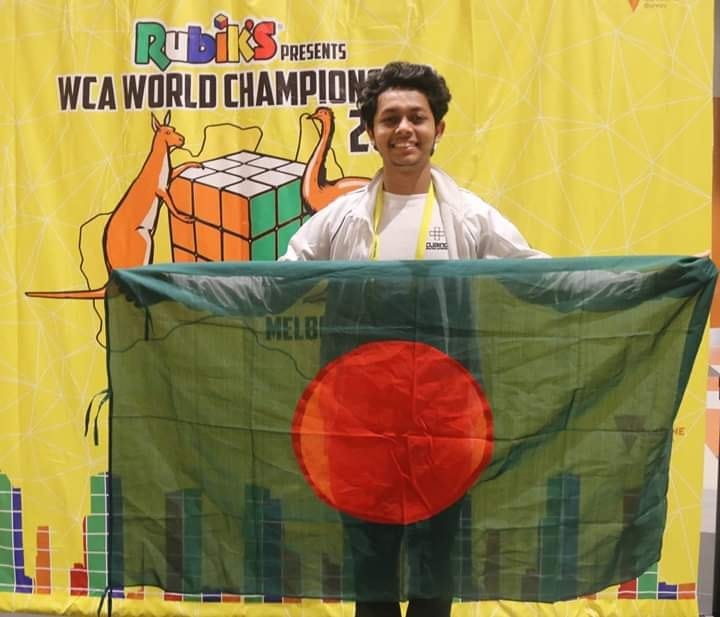
WCA World Championship 2019 (Melbourne, Australia)
- Muhtasim Al-Farabi
- He made history as the very first person to represent Bangladesh at a WCA World Championship.
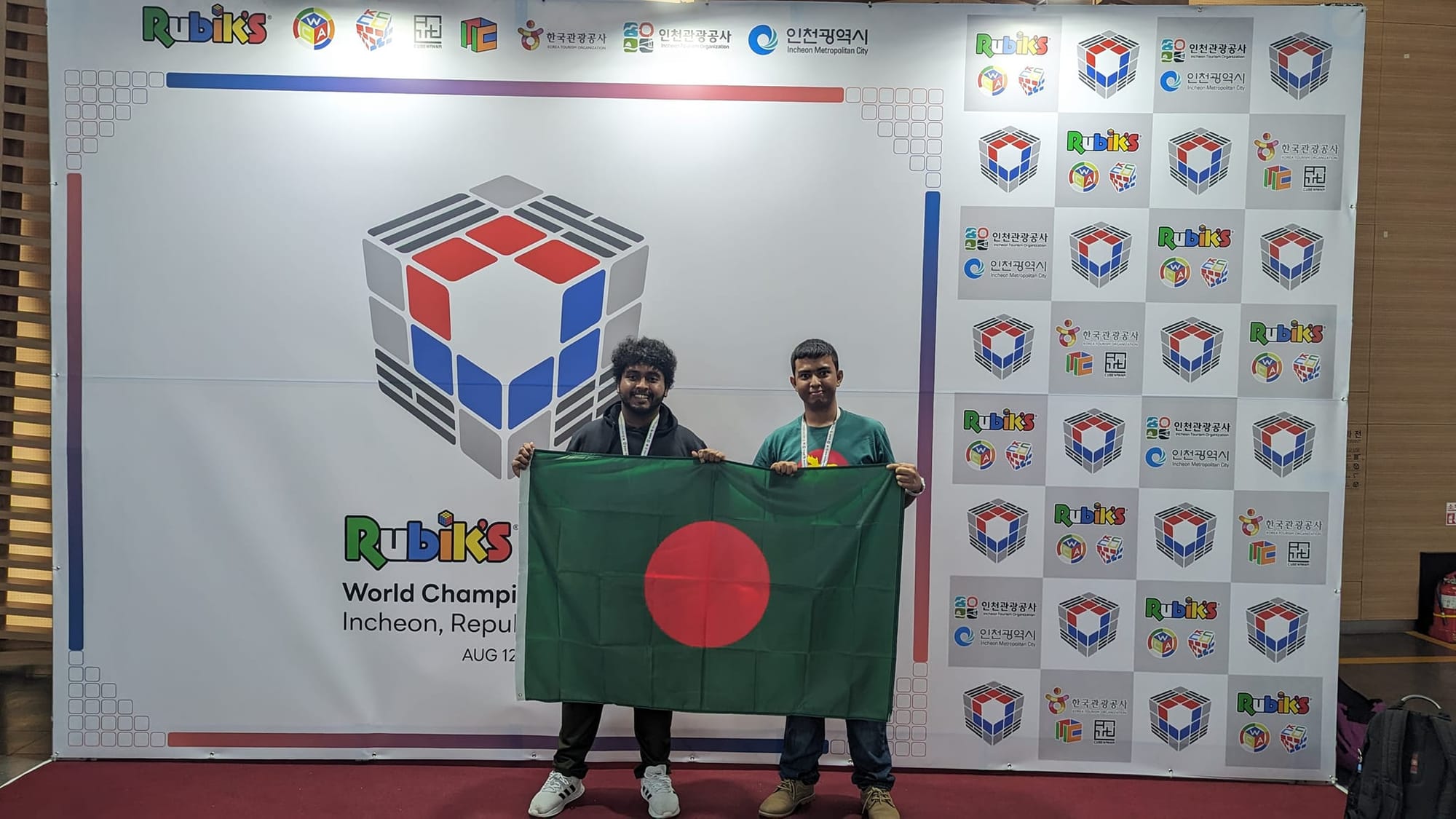
WCA World Championship 2023 (Incheon, South Korea)
- Durjoy Paul Apon
- Radiath Kamal Patwary
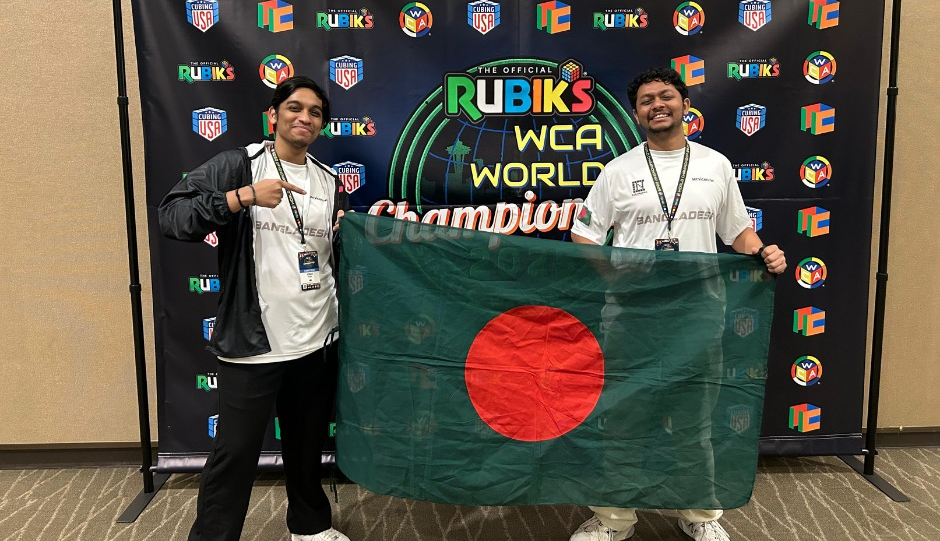
WCA World Championship 2025 (Seattle, USA)
- Ayman Haque
- Muhtasim Al-Farabi
- Marking his second appearance at the World Championship.
WCA Competitions in Bangladesh
Practical Solutions
Delegate & Organizer Development
Right now, with only three delegates (including one trainee), every competition depends heavily on a very small group of people. This creates bottlenecks, and competitions can’t expand beyond what these few individuals can handle.
To overcome this, Bangladesh needs to actively grow its pool of organizers and future delegates. Here’s how:
- Encouraging Active Cubers: Many of the most passionate cubers are young, energetic, and already deeply involved in the community. They can be guided to take on organizational responsibilities like scrambler coordination, judge management, or event scheduling. Over time, this builds leadership skills and ensures that responsibility is shared.
- Mentorship from Current Delegates: Current delegates like Arnab Banik and Mohammad Siwon Chowdhury can act as mentors. By training the next generation of organizers step by step, from handling registration to managing equipment, they can create a pipeline of competent organizers who are ready to take on bigger roles in the future.
- Formal Organizer Pipeline: Beyond informal mentoring, creating a structured system where interested cubers can sign up to volunteer, learn through shadowing, and eventually organize smaller competitions will give the community a sustainable pipeline of organizers. This way, the departure of one or two key people won’t stall the entire competitive scene.
Venue & Infrastructure Solutions
Venues are often the single biggest challenge when it comes to hosting WCA competitions in Bangladesh. Most events are held in Dhaka, where renting halls, auditoriums, or school campuses can be very expensive. On top of that, the basic infrastructure, such as chairs, tables, stable internet, and reliable electricity, isn’t always guaranteed, especially outside the capital.
To make competitions smoother and more accessible, the community can adopt a few practical solutions:
- Building Long-Term Partnerships with Institutions: Schools, universities, and coaching centers already host fests and Olympiads where cubing often finds a place. Partnering with these institutions for official WCA events could solve two problems at once: affordable venue access and exposure to a large student base. For example, universities like IUT, KUET, or Bangladesh University already have experience hosting competitions and could become regular partners.
- Cuber-Friendly Venues: Instead of expensive commercial halls, organizers can explore community centers, educational campuses, or sponsored auditoriums. These spaces usually provide tables, chairs, and electricity at a fraction of the cost. Having a list of “cuber-friendly” venues across Dhaka, Chattogram, Rajshahi, and Khulna would also make planning future events easier.
- Shared Resources: Equipment like timers, displays, and mats is limited. A community-led equipment pool where multiple organizers share and rotate the same set of official gear can reduce costs and ensure that smaller cities can also host competitions without struggling for resources.
- Backup Infrastructure: Competitions in Bangladesh often suffer from electricity and internet outages. Having simple backups like power banks, extension cables, and offline scorekeeping methods can prevent unnecessary delays and keep the competition running smoothly.
Financial Solutions
Finances are one of the toughest barriers when it comes to organizing WCA competitions in Bangladesh. Venue rent, delegate travel, official equipment, and logistics can quickly pile up. Since most participants are students, simply raising registration fees is not a long-term solution. What the community needs is a diverse mix of funding sources that spreads the burden and creates sustainability.
Here are the most practical financial solutions for Bangladesh:
- Seek Corporate Sponsors
Cubing is a youth-driven, intellectual activity that aligns well with tech companies, educational brands, and telecoms. By reaching out to these industries, competitions can attract corporate sponsorships in exchange for branding opportunities and access to a young, engaged audience. - Collaborate with Cube Stores
Stores like CubeNation and RM Cube Collections have already played a big role in supporting events. By offering official sponsorship packages such as logo placement, stall spaces, and event shoutouts, organizers can strengthen this partnership and ensure partial funding for every competition. - Tiered Registration Fees
Instead of one fixed fee, competitions can adopt a tiered structure:- Early Bird: Lower fee for early sign-ups.
- Regular: Standard fee for most participants.
- Late: A slightly higher fee applies to last-minute registrations.
This model rewards early commitment (helping organizers plan better) while ensuring that costs are still covered.
- Event Merchandise Sales
Selling event-branded items like hoodies, T-shirts, cube stands, stickers, and lanyards not only raises funds but also builds a sense of identity in the community. Cubers love to keep souvenirs, and merchandise can easily become a stable revenue stream. - Partnerships with Educational Institutions
Many schools and universities are open to supporting cubing events, especially if they are hosted on their campus. In return for exposure, institutions may provide discounted or free venues, logistical support, or partial funding. This reduces costs while connecting competitions with a large student audience. - Local Business Partnerships
Beyond cube stores, small local businesses, from stationery shops to food brands, can be approached for In-kind sponsorships such as snacks, printing, or banners. These contributions may seem small, but collectively ease the overall financial burden. - The Delegate Fund
One unique system in Bangladesh is the delegate fund. Profitable competitions contribute part of their surplus into this fund, which is then used to cover underperforming competitions that don’t break even. This ensures financial risks don’t discourage organizers and creates a sense of solidarity across the community. Thanks to this system, competitions continue to happen consistently even without major sponsors. eg, Kushtia Cube Open 2025 underperformed big time, and delegates covered the loss from the delegate fund.
Logistical Solutions
Even if funding is secured, the smooth execution of competitions depends heavily on logistics. In Bangladesh, organizers often face recurring issues such as limited access to equipment, a shortage of experienced volunteers, and competitions being concentrated in only a few areas. Tackling these challenges requires smart, long-term logistical planning rather than one-off fixes.
- Shared Pool of Official Competition Equipment :
Instead of organizers scrambling to find timers, mats, or displays for every event, a centrally managed equipment pool should exist. This pool, overseen by delegates or a trusted committee, can be transported from city to city. Not only does this standardize the quality of events, but it also ensures competitors don’t face delays or unfair conditions due to faulty or missing equipment. - Reducing Over-Reliance on Competitors as Volunteers :
Right now, in most competitions, competitors are also the main volunteer base. For example, if someone doesn’t have an active round, they are immediately asked to scramble, judge, or run scoresheets. While this keeps the event moving, it often comes at a big cost to the competitor:- They spend their supposed “rest time” running between stations.
- They can feel mentally and physically drained when their event comes up.
- In many cases, competitors admit to getting bad solves because they were judging or running scoresheets just minutes before their attempt.
To solve this, we need:
- A larger pool of dedicated volunteers who are not competing.
- Pre-competition volunteer sign-ups, so roles are spread evenly and no one feels overburdened.
- Rotation systems where competitors only take on light duties, ensuring they still have time to rest and prepare for their solves.
This balance is critical if we want Bangladeshi cubers to perform at their best without feeling punished for helping the community. - Rotating Competitions Across Major Cities :
Most competitions still happen in Dhaka, which excludes a large portion of cubers in cities like Chattogram, Rajshahi, Sylhet, and Khulna. Traveling to Dhaka is expensive, especially for school and college students. By rotating competitions across these cities, organizers can:- Reduce travel and lodging burdens on families.
- Create a sense of ownership and pride in local communities.
- Mentor new organizers outside Dhaka, eventually spreading the responsibility across the country.
A true national scene can only exist if events are accessible to cubers from all corners of Bangladesh.
Community Growth Solutions
A thriving cubing community doesn’t just grow inside competition halls; it starts in classrooms, living rooms, and casual hangouts. For Bangladesh, where most cubers are students, community growth must be centered around schools, parents, and social spaces. Here’s how the scene can expand beyond just the WCA calendar:
- School & College Awareness Programs :
Since cubing is most popular among students, schools, and colleges are the natural hubs to spread it. Short awareness sessions or workshops can introduce cubing as more than just a “toy,” showing it as a mind sport that improves focus, memory, and problem-solving. When teachers and principals see its educational benefits, they may even allow clubs or events on campus, which will bring in dozens of new cubers. - Parent Orientation at Competitions :
One of the biggest community challenges is that many parents don’t understand why their children are paying registration fees “just to play with cubes.” A short orientation at the beginning of the Recognition competitions can address this. Delegates and organizers can explain:- What the WCA is and why official competitions matter.
- Recognition, records, and rankings are global, not local.
- The importance of volunteers and how events are run.
Once parents realize it’s a legitimate, structured sport, they’re far more likely to support their children financially and emotionally.
- Boosting Social Media Presence :
Bangladesh has a strong online cubing culture, but it often doesn’t translate into offline participation. We need more engaging digital storytelling:- YouTube vlogs documenting behind-the-scenes competition life.
- Highlight reels of records, funny moments, and winners.
- Short, snappy Instagram and Facebook reels that appeal to non-cubers and help the sport reach a mainstream audience.
This can build hype for competitions and make cubers feel recognized beyond their small circle.
- Unofficial/Local Competitions :
WCA competitions require heavy logistics, delegates, and costs, but small, unofficial competitions can act as practice grounds. They don’t need timers or strict formats; just a few tables, cubes, and a supportive environment. These events help beginners get used to competing before stepping into the official scene, and they reduce the gap between “online cubers” and “competition cubers.”
Reviving Cube Adda Culture
Before WCA competitions became regular in Bangladesh, the heartbeat of the cubing community was the cube adda. On weekends, cubers would gather in parks sharing their passion for puzzles, teaching each other algorithms, and even arranging small unofficial competitions. These addas weren’t just meetups; they were the foundation of Bangladeshi cubing.
Back then, Rhivu Bhai was the only Bangladeshi cuber who regularly attended WCA competitions in India. His presence alone was enough to attract people to Cube Addas, where newcomers would join just to meet him and take pictures. For many, this was their first taste of the larger cubing world, and it kept the community active long before WCA competitions arrived in Bangladesh.
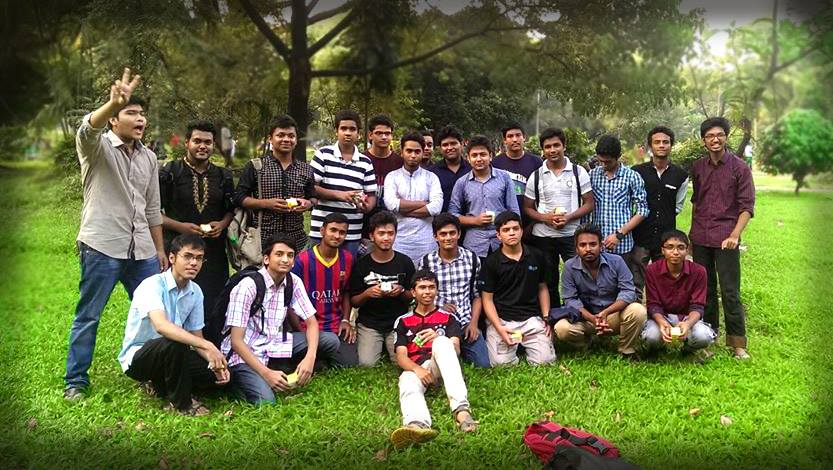
Reviving this culture today can play a huge role in rebuilding and strengthening the community. Cube Addas are:
- Accessible & Low-Cost: No venue or registration fees needed; anyone can join.
- Welcoming for Newcomers: A friendly space where beginners don’t feel pressured.
- Community-Building: Strengthens bonds between cubers, old and new.
- Practice Grounds: Provides a relaxed environment to prepare for official competitions.
Recently, on 12th September 2025, a group of cubers from Bogura hosted a cube adda, marking an exciting restart of this tradition. This is an encouraging step, showing that cubers themselves are willing to take the initiative to keep the culture alive.
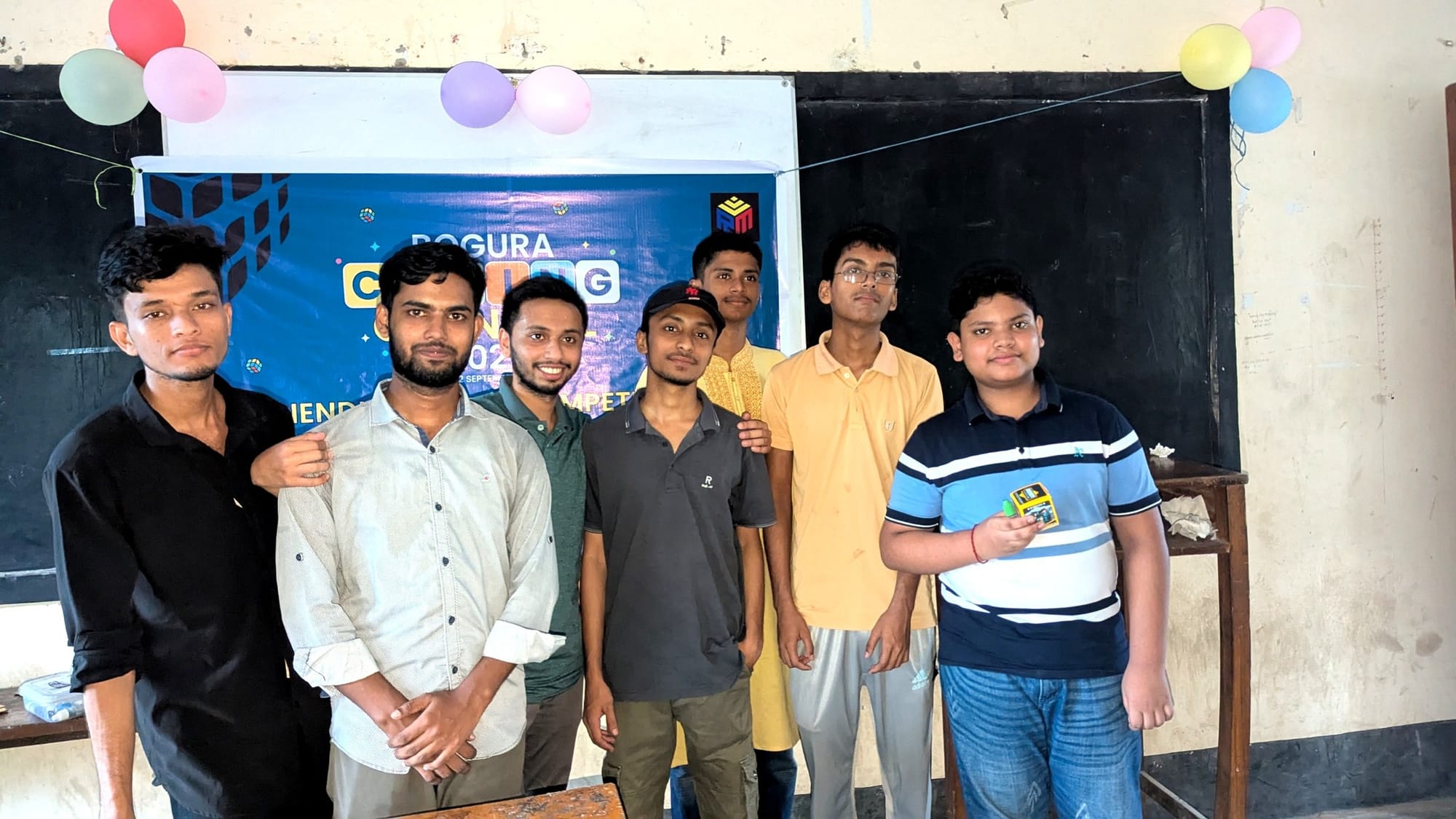
Reviving Cube Adda culture means reviving the soul of Bangladeshi cubing. It’s a reminder that competitions aren’t the only way to grow sometimes; all it takes is a few cubers, a few cubes, and a shared passion.
Competitive Development Solutions
For any cubing community to thrive, it’s not enough to just host competitions; those competitions must challenge cubers, showcase variety, and create pathways to higher levels. Bangladesh has a growing pool of talented cubers, but limited events and exposure often hold them back. A structured approach to competitive development can help both beginners and elite cubers grow together.
Offer a Wider Variety of Events
Currently, most competitions in Bangladesh focus on classic events like 3x3, 2x2, Pyraminx, and occasionally Clock or Skewb. While these are great for beginners, limiting competitions to only a few events restricts cubers’ growth and creativity. Introducing more specialized events, such as:
- Fewest Moves Challenge (FMC)
- Big Cubes (4x4, 5x5, 6x6, 7x7)
- Blindfolded events can encourage cubers to explore different solving styles and develop new skills. By offering a wider range of events, competitions can appeal to both casual and serious cubers, making participation more exciting.
Specialized Competitions
Alongside traditional multi-event competitions, Bangladesh could host single-event competitions tailored to specific interests:
- FMC-only competitions for strategy and planning enthusiasts.
- Clock, Skewb, or other niche events for cubers who want to compete outside the standard 3x3 focus.
These smaller, specialized competitions not only give participants more chances to shine but also foster a sense of mastery in each category.
Support for Elite Cubers to Attend International Competitions
Bangladeshi cubers like Radiath and Muhtasim Al-Farabi have represented the country at the World Championships, but few others get the chance due to financial and logistical barriers. Supporting elite cubers through:
- Financial assistance for travel, accommodation, and registration.
- Guidance on international standards and competition preparation
can help them gain valuable exposure, improve rankings, and inspire the next generation of cubers. This also strengthens Bangladesh’s reputation in the global cubing community.
Leagues and Championships to Maintain Excitement
Sporadic competitions often lead to waning interest among cubers. Introducing structured leagues or annual championships, such as the Bangladesh Speedcubing League, can keep the community engaged year-round. Benefits include:
- A clear calendar for competitors to plan and train.
- Opportunities for consistent recognition, rankings, and small prizes.
- Increased camaraderie and friendly rivalry, which boosts both skill and motivation.
By expanding events, creating specialized competitions, supporting elite cubers, and maintaining structured leagues, Bangladesh can cultivate a competitive environment that challenges all skill levels, ensures sustained interest, and prepares its cubers for the international stage.
WCA Competitions in Bangladesh
Long-term Vision
Speedcubing Bangladesh

“I have a dream.” – Martin Luther King Jr.
Every cuber in Bangladesh shares a dream too that one day our country will stand tall on the global cubing map, not just as a participant, but as a recognized community. For us, that dream has a name:
"Speedcubing Bangladesh becoming the official WCA Regional Organization."
Right now, we’ve come a long way. From cube addas in parks and cafés, to hosting national-level competitions with hundreds of participants, to even seeing names like Radiath, Farabi, Ayman & Apon representing Bangladesh at the World Championships, our community has proved its passion and resilience. But without a regional organization, Bangladesh is still missing that final stamp of recognition.
The day Speedcubing Bangladesh is accepted as a regional organization, it will feel like Bangladesh has finally arrived. It means our competitions will be officially backed, our calendars coordinated, and our community recognized the same way countries like the Philippines and Canada already are.
Why this matters for us:
- Global recognition: Bangladesh won’t just be “another country with cubers,” but a nation officially part of the WCA ecosystem.
- Better competition planning: A regional body can coordinate events across Dhaka, Chattogram, Rajshahi, Sylhet, and Bogura, so no city is left behind.
- Stronger sponsorships: Companies, schools, and even government institutions are far more likely to support an official organization.
- Sustainable growth: From school workshops to national championships, everything can be streamlined and built for the long term.
And here’s where it gets even more exciting: once Speedcubing Bangladesh becomes the official national body, all the other cubing organizations can thrive under it as sub-organizations. Groups like Cubing Dimension, Bangladesh Cube Club, Cubomania, Qubical Cubers Society, Speedcubing League Bangladesh, and many others can operate as local or city-based wings. This way, every initiative has a home, and instead of competing for attention, they can work together toward the same national vision.
But this dream isn’t just about paperwork or titles. It’s about the hundreds of kids learning their first PLL, the parents slowly realizing cubing is more than a “toy,” the volunteers giving up their own solves to keep competitions running, and the friendships built over late-night cube addas.
To get there, we need to keep proving ourselves in more competitions, more organizers, more consistency, and most importantly, more unity as a community.
And when that day comes, when Bangladesh is officially recognized as a WCA regional organization, we’ll look back at the small addas, the borrowed timers, the underfunded venues, and the struggles we faced, and we’ll realize it was all part of the journey.
Because that dream won’t just belong to one cuber, one delegate, or one city. It will belong to all of us.
A sustainable ecosystem
For Speedcubing Bangladesh to become a proper WCA Regional Organization, we need to build a sustainable ecosystem where responsibilities are shared and growth doesn’t depend on just a few people. That means focusing on four key areas:
- Organizers: At the moment, only a handful of people know how to run a competition end-to-end. We need to train new organizers at every event so that over time, each city has capable people who can manage registrations, venues, schedules, and logistics.
- Delegates: Bangladesh currently has very few delegates, which limits how many competitions we can hold. We need to actively mentor and support experienced cubers who are interested in becoming delegates so that events can be hosted more frequently and across more regions.
- Volunteers: Most competitions rely on competitors themselves to judge and run between rounds, which often affects their own performances. Building a larger, trained volunteer base with proper task rotation will make events smoother and fairer for everyone.
- Sponsors: Right now, cube stores cover most sponsorship needs, but we need more. Partnerships with educational institutions, tech brands, and local businesses can provide steady financial backing. This will help cover venues, equipment, and reduce registration fees for students.
By strengthening these four areas, Bangladesh can move toward a system where competitions run smoothly, cubers are supported, and the scene continues to grow every year without burning out the same small group of people.
Secure long-term sponsors
For cubing in Bangladesh to move from passion-driven events to a truly sustainable ecosystem, long-term sponsorship is essential. Until now, cube shops have been the primary supporters, but the next step is to bring in larger organizations that align with the values of education, youth empowerment, and innovation.
The most promising partners are:
- BRAC and similar NGOs: BRAC has a long history of supporting youth development and education. Cubing, with its focus on problem-solving, discipline, and creativity, naturally fits within their vision.
- Ed-tech companies: Organizations like 10 Minute School, Shikho, and other online learning platforms are constantly engaging with students. Partnering with cubing competitions could strengthen their image as enablers of learning beyond classrooms.
- Student-friendly businesses: Brands that cater to young people, from bookshops and cafes to tech startups, can use cubing events to connect directly with their audience.
These sponsors don’t just provide funding; they provide stability and legitimacy. With their backing, organizers can:
- Secure venues in advance without financial stress.
- Keep registration fees accessible to students from all backgrounds.
- Improve the competition experience with better equipment and media coverage.
- Expand events to smaller cities and towns, spreading cubing beyond Dhaka.
If partnerships with BRAC, ed-techs, and other student-centered organizations become a reality, cubing in Bangladesh can grow from a niche hobby into a respected youth movement with national recognition.
Hosting 10+ WCA Competitions Annually
Hosting 10 or more WCA competitions annually is no longer just a dream, it’s becoming a reality in Bangladesh. 2025 has already been a landmark year, with six competitions successfully hosted across different cities, and more lined up in the coming months. This shows how far the cubing community has come in terms of organizational capability and regional expansion.
Here’s a quick recap of the competitions held so far in 2025:
- Jan 03, 2025 — KUET MSE Cube Rush 2025
Venue: Khulna University of Engineering & Technology, Khulna - Feb 27–28, 2025 — Bangladesh Cubing Fiesta 2025
Venue: Bangladesh University (Permanent Campus), Dhaka - Jun 20, 2025 — Cube Chronicles Uttara 2025
Venue: BRAC Kumon, Uttara, Dhaka - Jul 25, 2025 — Dhaka Side Cubic Quest 2025
Venue: BRAC Kumon, Uttara, Dhaka - Sep 06, 2025 — Savar Cube Open 2025
Venue: Savar Cantonment Public School and College, Savar Cantonment - Sep 13, 2025 — Kushtia Cube Open 2025
Venue: Islamic University, Kushtia
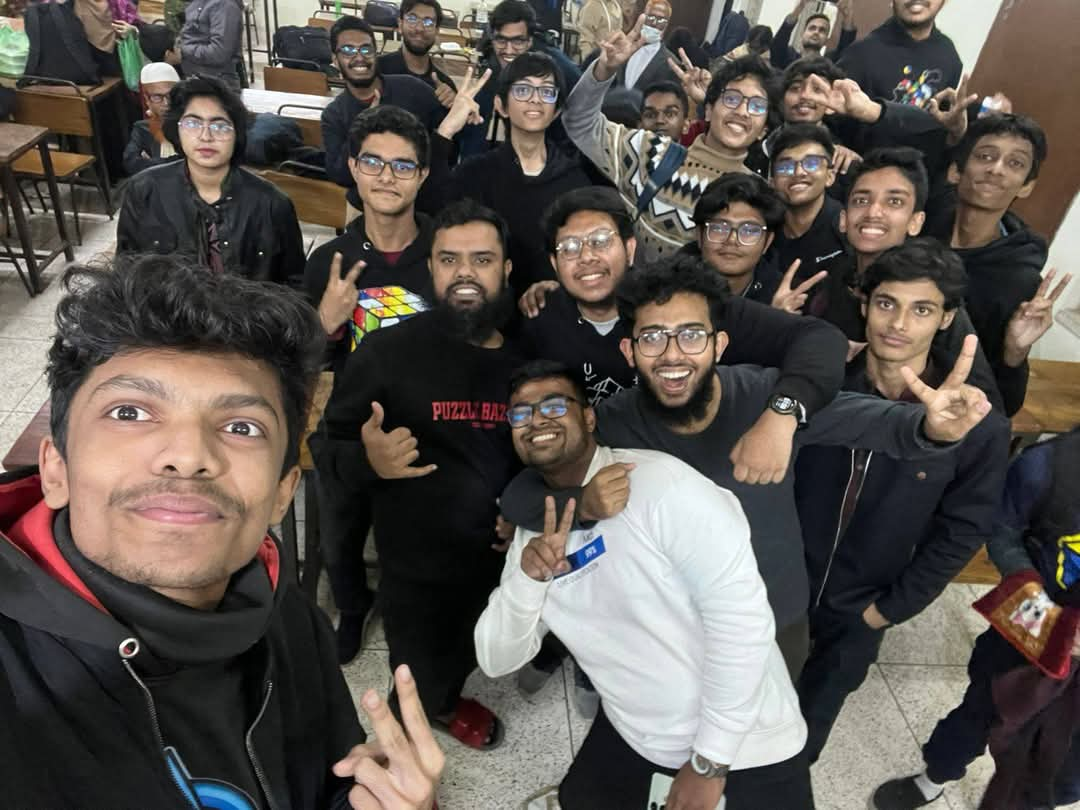
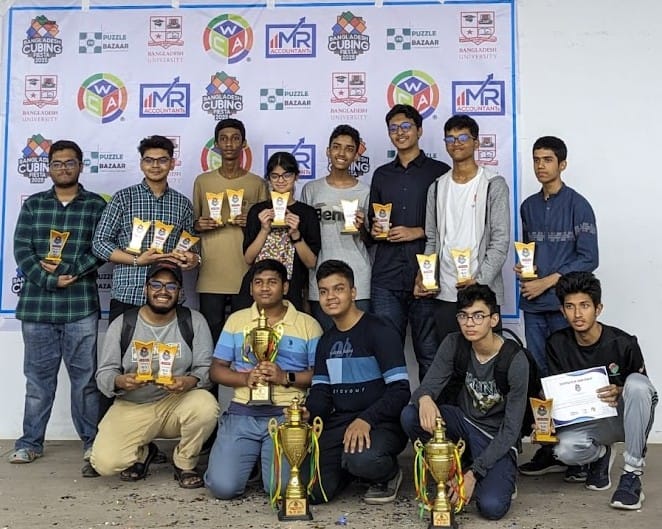
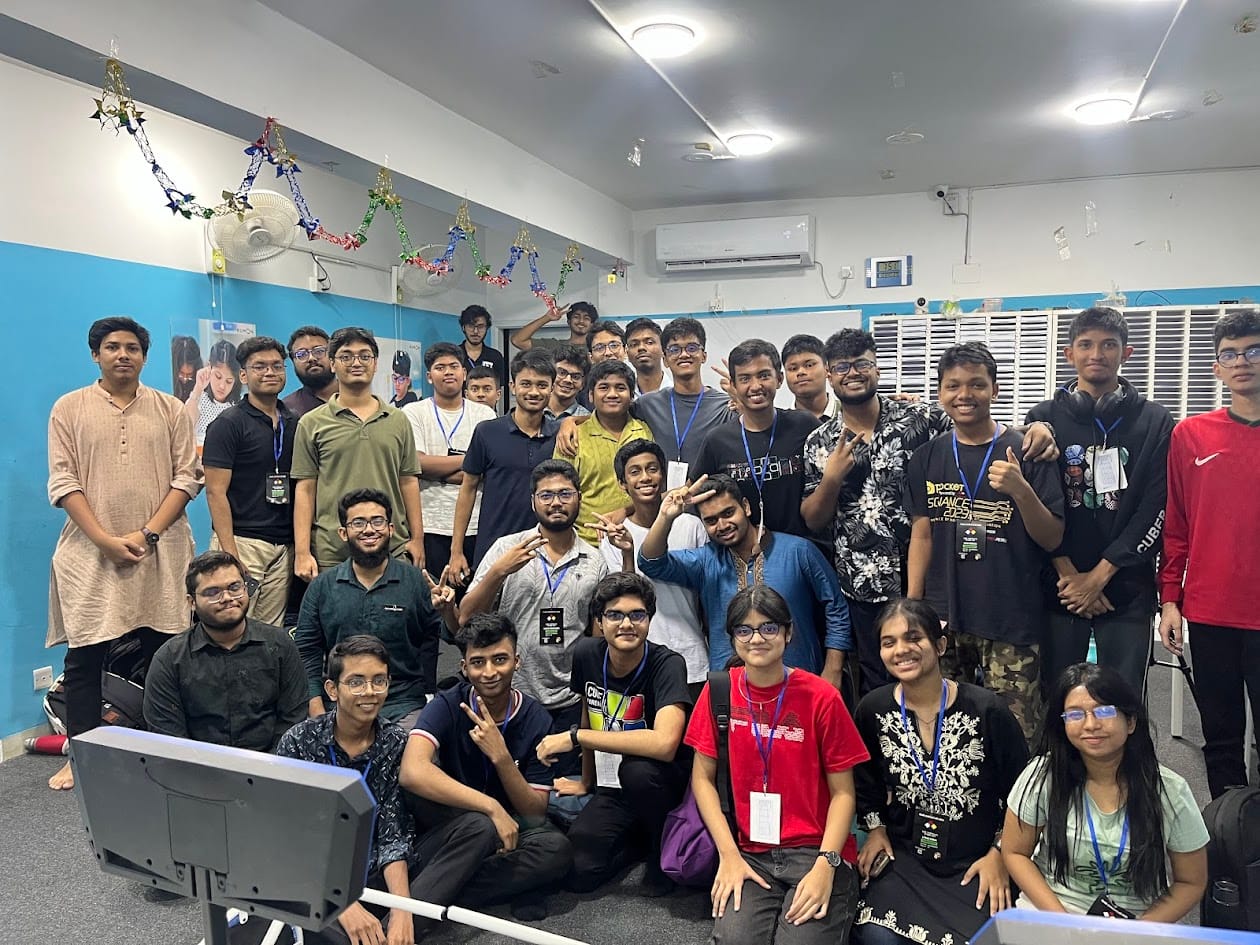
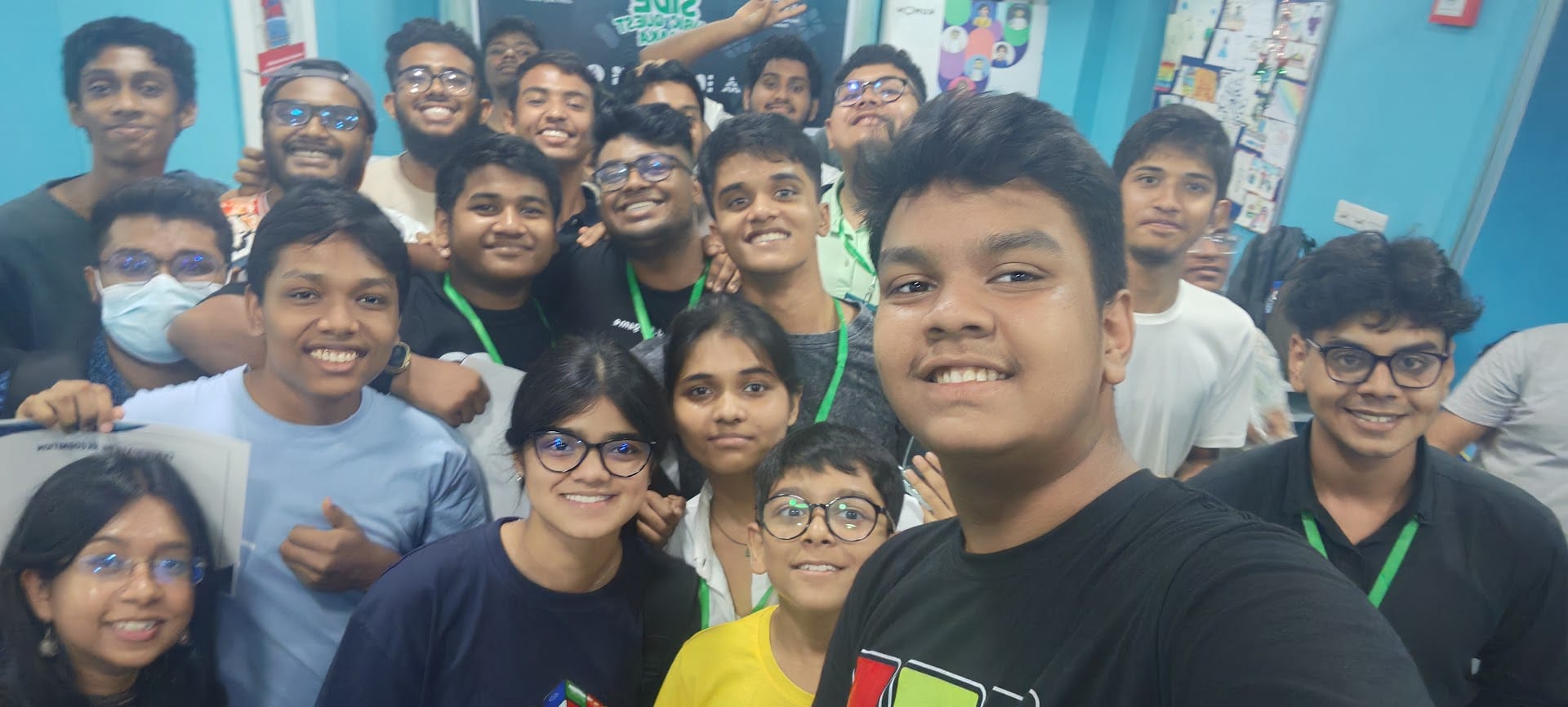
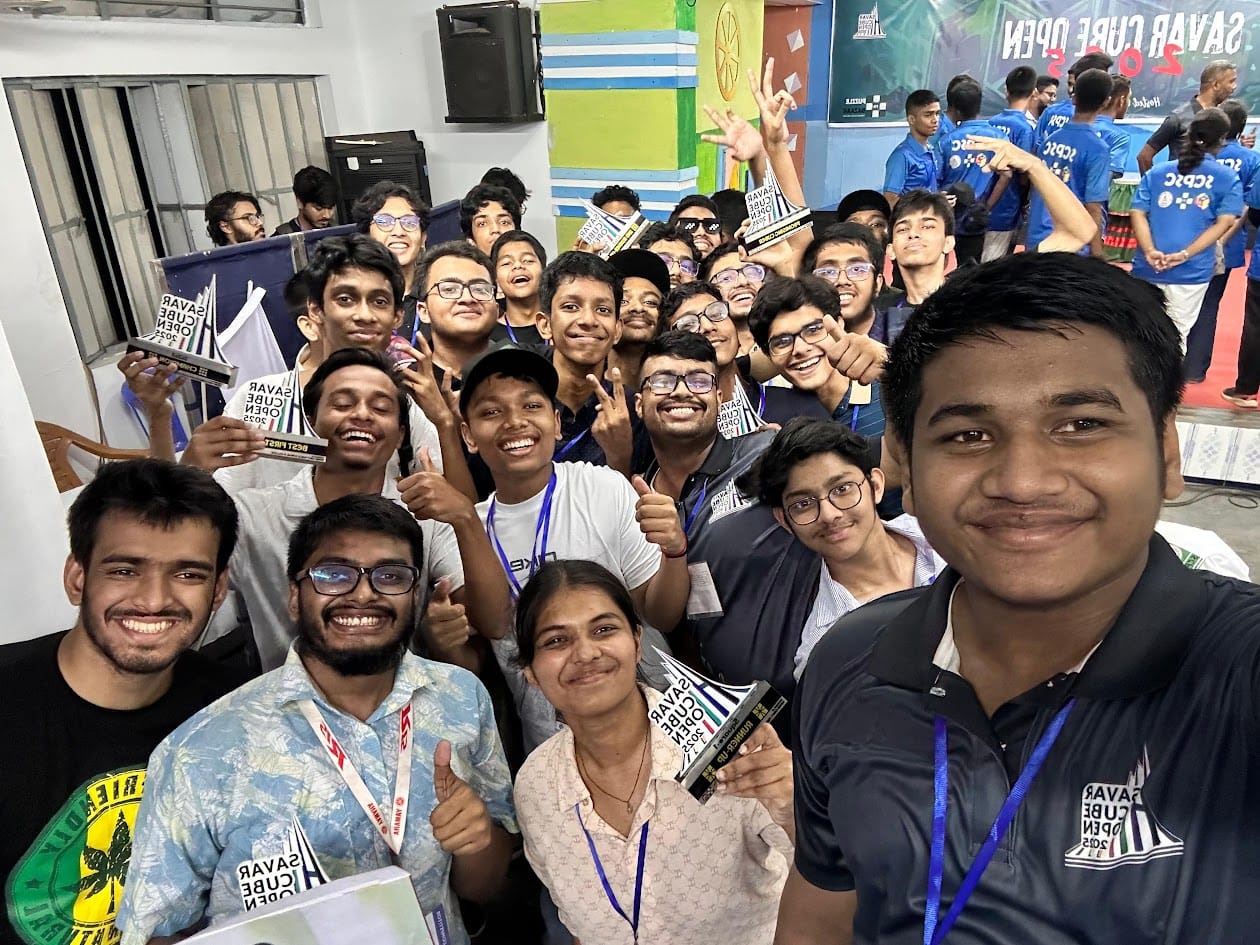

Group pictures from all six WCA Competitions hosted in 2025(until September 13th 2025)
And the year isn’t over yet, with Chattogram Cube Open 2025 (Sep 26–27) already announced, plus more lined up in November and December, crossing the 10+ competition milestone is highly achievable this year.
At this rate, Bangladesh is on track to become one of the most active cubing hubs in South Asia, rivaling countries like the Philippines and India in terms of competition density and community involvement.
Farhan Labib aims to host the Asian Championship in Bangladesh by the year 2028.
WCA Competitions in Bangladesh
Conclusion
Cubing in Bangladesh is no longer just a hobby. It’s a community, a sport, and a tool for growth. From school hallways and casual cube addas to packed WCA competitions, the scene has grown leaps and bounds, fueled by the curiosity, energy, and dedication of students and young cubers across the country.
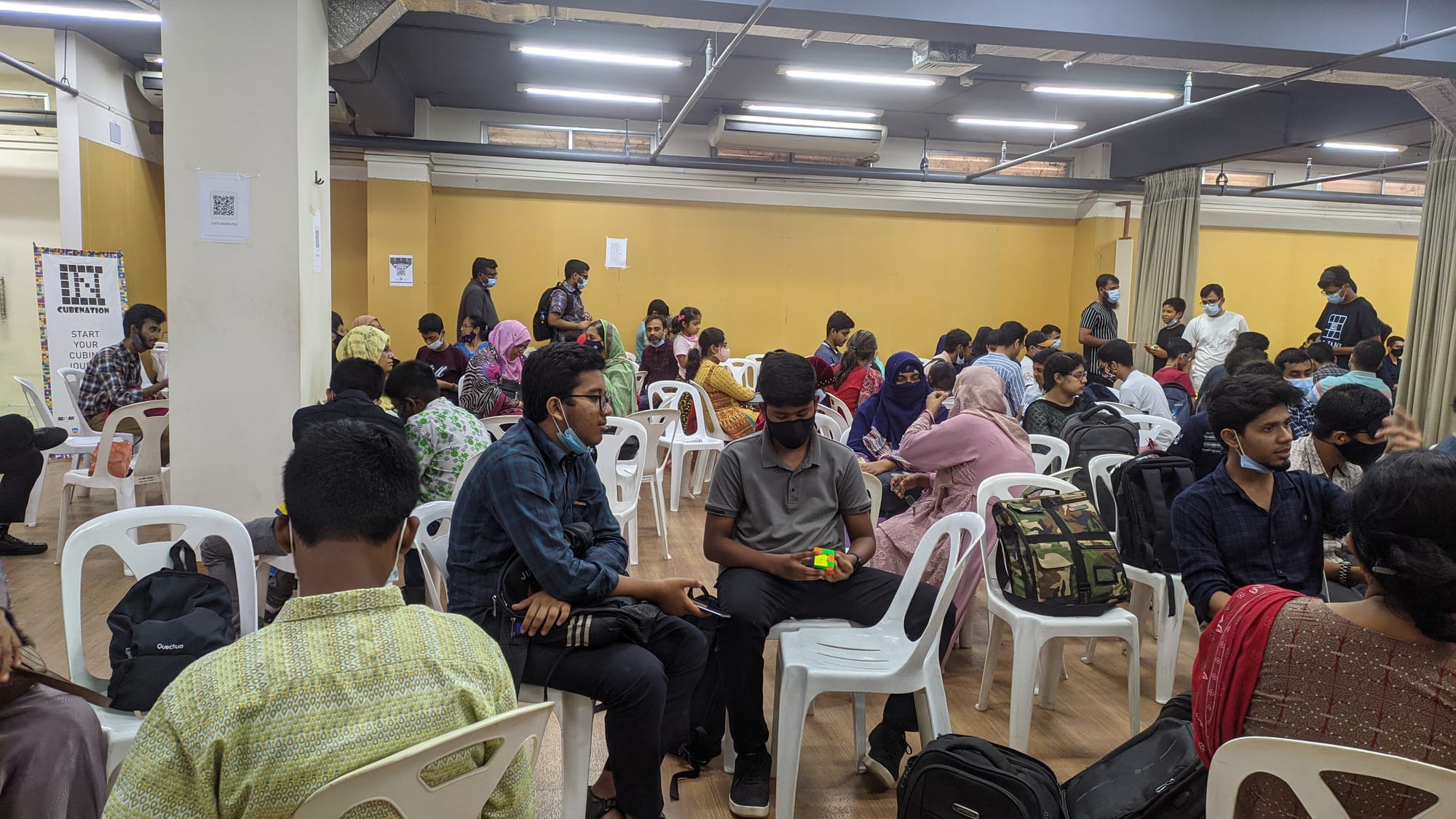
Even with challenges like limited venues, high costs, and few delegates, Bangladeshi cubers never stop showing up. They travel long distances, volunteer between rounds, and compete with heart, proving that passion can carry a community far beyond its humble beginnings.
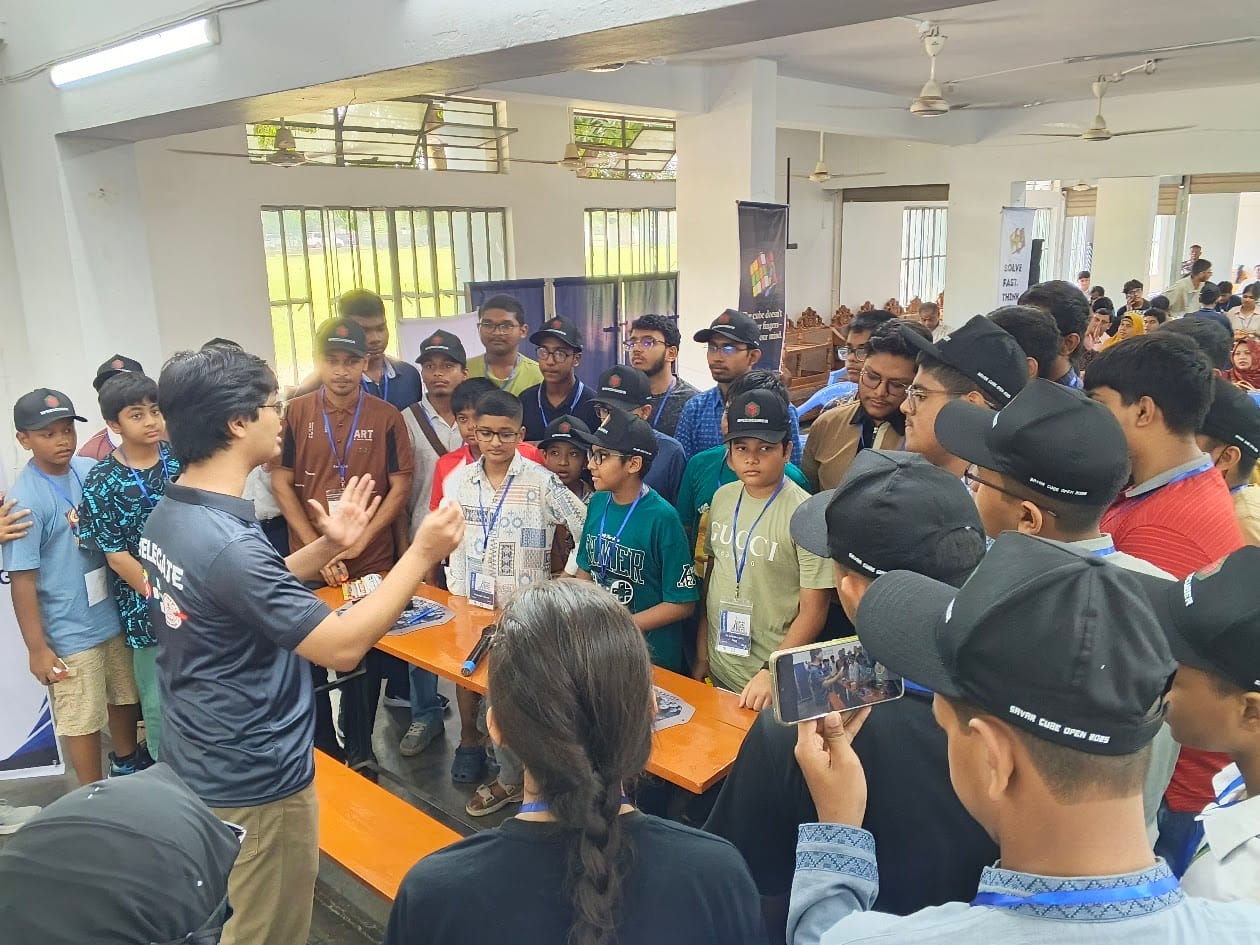
The future of cubing in Bangladesh depends on collaboration. A strong community must be backed by long-term sponsors, well-trained organizers, and a growing network of delegates and volunteers. Together, they can expand competitions to multiple cities, bring more students into the sport, and build a professional, sustainable ecosystem that lasts for years.
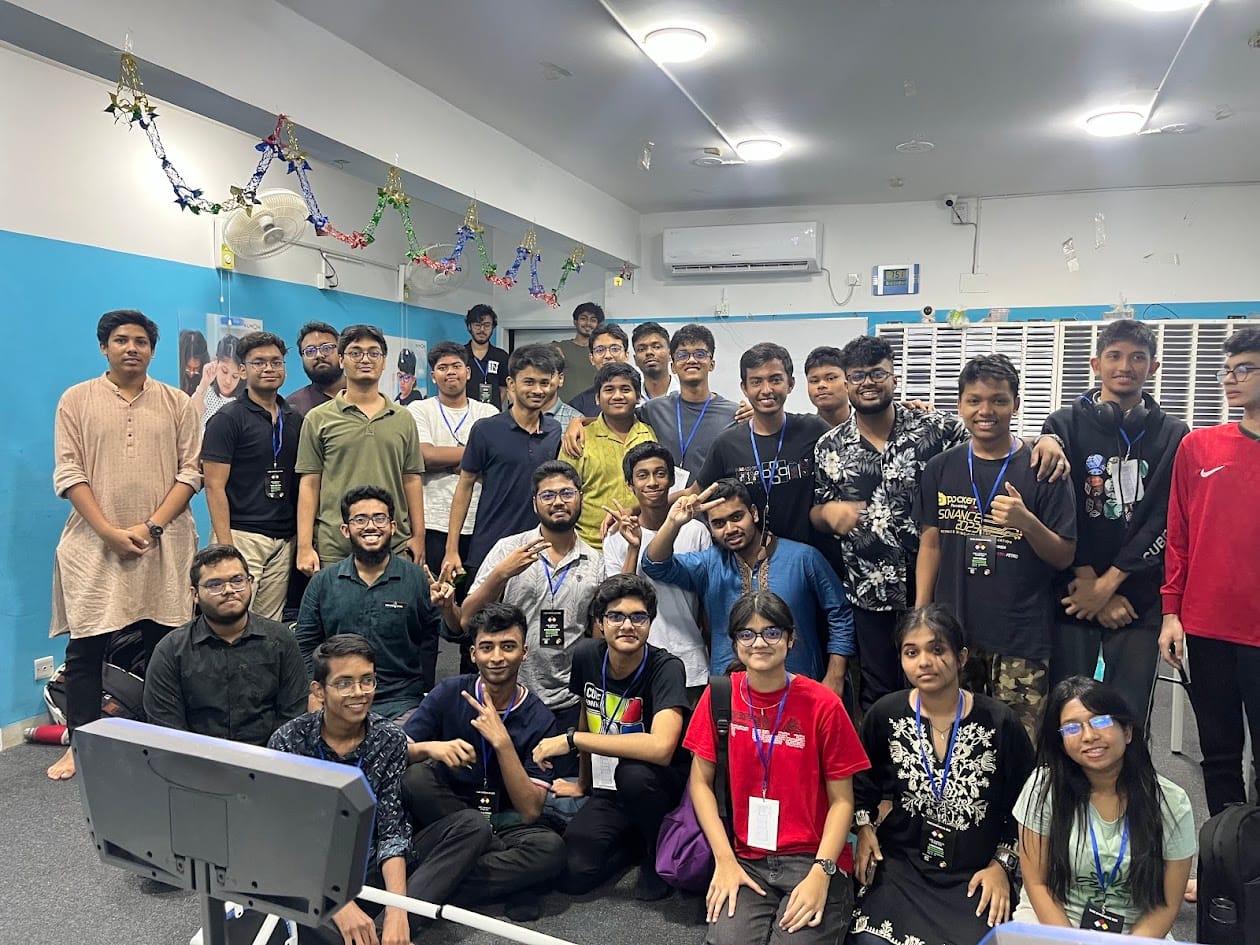
2025 is already showing that this vision is possible. With more competitions, growing awareness, and a thriving online and offline community, Bangladesh is on its way to becoming a regional hub for cubing in South Asia.
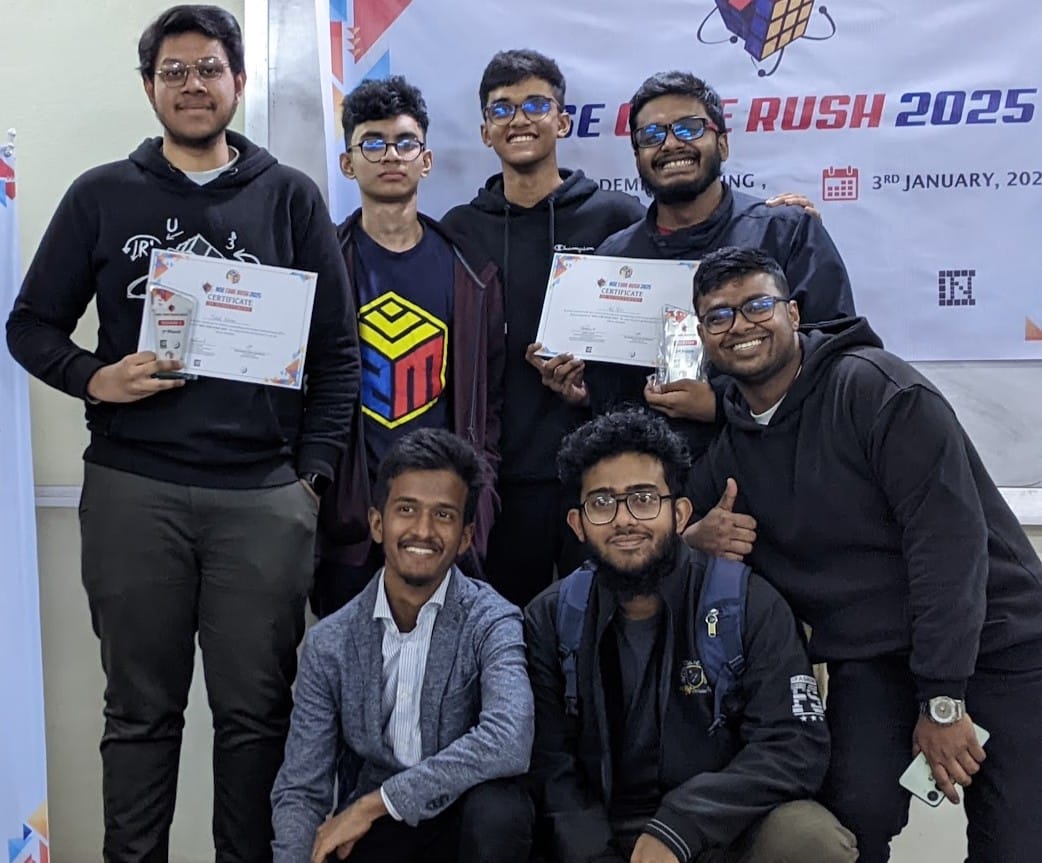
Cubing here is about more than solving a puzzle. It’s about building friendships, testing skills, and shaping the next generation of thinkers and problem-solvers. The energy is here, the talent is ready, and the community is growing. All it needs now is support and opportunity to take Bangladeshi cubing to the world stage.

